
Interview-for-Algorithm-Engineer
【三年面试五年模拟】AI算法工程师面试秘籍。涵盖AIGC、传统深度学习、自动驾驶、机器学习、计算机视觉、自然语言处理、强化学习、具身智能、元宇宙、AGI等AI行业面试笔试经验与干货知识。
Stars: 1396
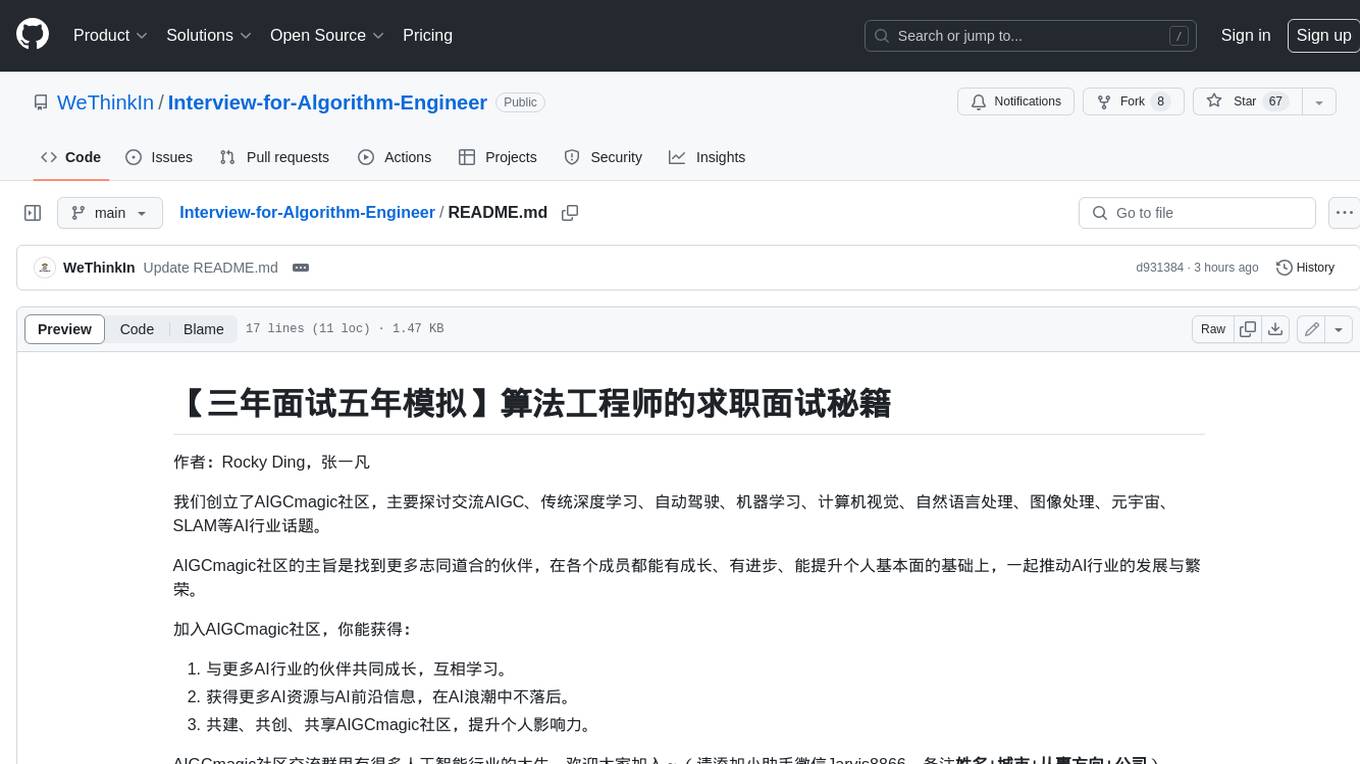
This repository provides a collection of interview questions and answers for algorithm engineers. The questions are organized by topic, and each question includes a detailed explanation of the answer. This repository is a valuable resource for anyone preparing for an algorithm engineering interview.
README:
AI算法岗求职面试秘籍: 涵盖大厂内推、面试经验分享、AIGC公司指南、AIGC公司辛秘、校招时间表、面试准备、AIGC薪资、刷题指南、求职答疑等资料。
AI算法岗方向: 涵盖AIGC、传统深度学习、自动驾驶、机器学习、计算机视觉、自然语言处理、强化学习、具身智能、元宇宙、AGI等。
开发岗方向: 涵盖Python、Java、C/C++、Go、嵌入式、前端、后端、测试、运维等。
本项目凝聚了AIGC时代众多一线AIGC算法专家的实际经验与深度思考,本项目的核心内容均取材于编者们在AI行业中的日常工作、研究、竞赛以及实践中总结的干货AI知识点和各大AIGC公司常见的AI岗位笔试/面试题。
本项目可作为高等院校人工智能、计算机科学、控制科学与工程、电子科学与技术等领域的研究、教学、竞赛以及实践的参考用书;也可为相关专业本科生及研究生提供AIGC领域的学习、研究与思考方向;还可为AIGC、传统深度学习以及自动驾驶领域的初、中级学习、业务、研究以及工程技术人员提供思路参考,尤其适合需要查漏补缺的AI求职应聘者及提供相关AICG算法岗位的面试官阅读研究。本项目也希望读者们在研究学习的同时,培养发现问题、解决问题、举一反三的综合能力。
Rocky承诺本项目会陪伴大家的完整职业生涯和码二代们的完整职业生涯,所以会一直持续更新,欢迎大家分享求职经历、工作经验、招聘内推、工作机会等信息,欢迎共同建设完善本项目!
构建项目不容易,希望大家能够多多star~,star本项目,你就获得了0.5个心仪的offer,再转发本项目,你就获得了0.75个心仪offer!持续star和分享本项目,你就获得了职场晋升和薪资上涨的50%必要条件。祝大家求职顺利、工作顺利!
【Three Years of Interviews, Five Years of Practice】The Ultimate Guide to AI Algorithm Engineer Job Interviews
- ⭐ 算法岗面试求职宝典
- 🎨 AI绘画基础
- 🎬 AI视频基础
- 🎇 大模型基础
- 🔱 AI多模态基础
 数字人基础
数字人基础
- 📕 深度学习基础
- 📘 机器学习基础
- 🏰 模型部署基础
- 🌠 经典模型
- 🐍 编程基础:Python
- 📊 编程基础:C和C++
- 💥 大厂高频算法题
- 🔋 数据结构基础
- 💻 计算机基础
- 📈 开放性问题
- 2025年AI算法岗求职群&学习交流社区
Rocky Ding 主编
Rocky Ding,AIGCmagic社区创始人,知乎AI领域知名博主(同名Rocky Ding),公众号《WeThinkIn》主理人,全网文章阅读量300万+。资深AIGC算法专家,专注于AIGC产品与AI算法解决方案的商业应用。在互联网大厂、AI独角兽、传统科技公司以及国企研究院有丰富的工作经验与创业经验。多次带队获得CVPR、AAAI、Kaggle等AI领域顶级竞赛的冠军成绩。发表多篇AI领域论文和专利。
Rocky最新撰写完成10万字的Stable Diffusion 3和FLUX.1系列模型全网最详细讲解文章:深入浅出完整解析Stable Diffusion 3(SD 3)和FLUX.1系列核心基础知识
张一凡 副主编
张一凡,资深AIGC算法专家,曾就职于国内top安防公司,专注于AIGC算法实现与落地部署,目前在国内某研究所主要从事AI大模型相关的研究。
猫先生 副主编
猫先生,公众号“魔方AI空间”主理人,资深AIGC算法专家,具有丰富AI模型部署及落地经验,多次参加赛事取得冠军成绩,专注于AIGC技术探索与商业案例应用。
徐晨轩 副主编
徐晨轩,"AI+"博士,传统工科与人工智能的跨界博士研究生。致力于将AI技术融入打灰工程,探索交叉学科的创新边界。
刘一手 副主编
刘一手,资深高级算法工程师,先后就职于AI教育独角兽企业和百亿规模的私募金融机构,擅长AI算法的工程研发。目前专注于计算机视觉算法和多模态大模型在教育与金融两大场景中的创新应用与实践落地。
玉箫然 副主编
玉箫然,资深高级算法工程师,在CV、AIGC、大模型等多个领域经验丰富,在国内头部金融投顾公司任职,主要从事大模型相关的应用落地、性能优化。
《三年面试五年模拟》项目是AIGCmagic社区的主打项目之一,AIGCmagic社区持续分享探讨AIGC、传统深度学习、自动驾驶、机器学习、计算机视觉、自然语言处理、具身智能、元宇宙、SLAM等AI行业的干货知识与前沿技术资讯。
AIGCmagic社区的宗旨是找到更多志同道合的伙伴,在星球居民们都能有成长、有进步、能提升个人基本面的基础上,一起推动AI行业的发展与繁荣。
因此Rocky和AIGC行业的专家们一起建立了AIGCmagic社区知识星球。AIGCmagic社区知识星球是国内首个以AIGC全栈技术与商业变现为主线的专业学习交流平台,涉及AI绘画、AI视频、大模型、AI多模态、数字人以及全行业AIGC赋能等100+应用方向。星球内部包含海量学习资源、专业问答、前沿资讯、内推招聘、AI课程、AIGC模型、AIGC数据集和源码。欢迎大家加入,一起学习交流,共同推动AIGC行业的发展与普惠!
知识星球2025年惊喜价:原价199元,前200名限量立减50!特惠价仅149元!(每天仅4毛钱)
时长:一年(从我们加入的时刻算起)
加入方式:微信扫描下方二维码,即可加入AIGCmagic社区知识星球
建议:推荐下载知识星球APP使用,同时也可使用小程序或者知识星球公众号进行使用,可以随时发帖/提问/交流/回答,并可以快速访问知识星球里的AIGC干货资源。
加入AIGCmagic社区后,我们也建立了专门的知识星球-VIP交流学习群,欢迎大家加入并进行深度的AI行业资源拓展与链接!(请添加小助手微信Jarvis8866,备注知识星球里的个人昵称+城市+从事方向/研究方向+公司/学校)
经验分享:如果您已经有AIGC领域的求职经验和从业经验,欢迎您分享笔试经验、面试经验、工作经验、岗位需求等相关经验,可直接通过PR和Issue等方式提交!
参与共建:您可以通过下面几种方式参与项目共建:
- 直接参与建设、维护本项目。
- 加入AIGCmagic社区参与更多项目共建。
岗位招聘:若贵司有AIGC相关招聘、内推信息,欢迎在本项目中发布!
For Tasks:
Click tags to check more tools for each tasksFor Jobs:
Alternative AI tools for Interview-for-Algorithm-Engineer
Similar Open Source Tools

Interview-for-Algorithm-Engineer
This repository provides a collection of interview questions and answers for algorithm engineers. The questions are organized by topic, and each question includes a detailed explanation of the answer. This repository is a valuable resource for anyone preparing for an algorithm engineering interview.
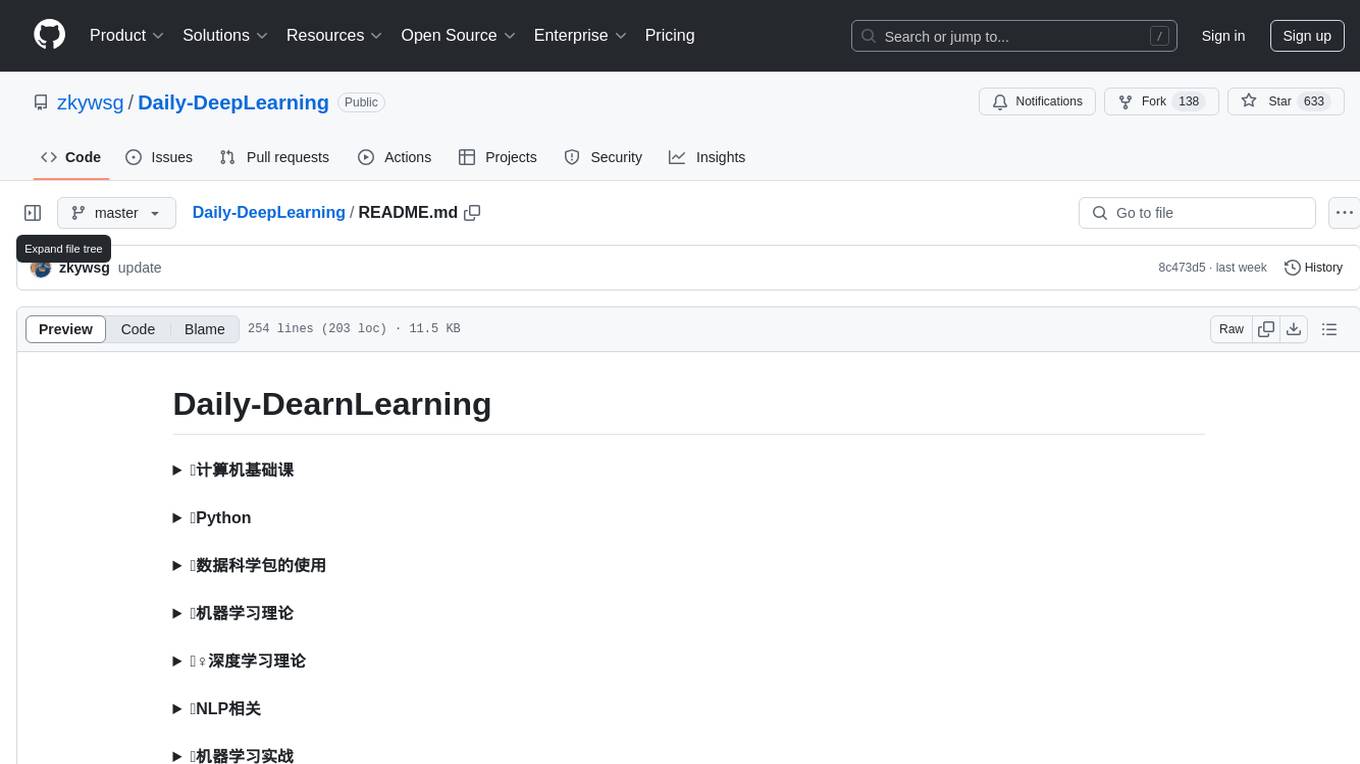
Daily-DeepLearning
Daily-DeepLearning is a repository that covers various computer science topics such as data structures, operating systems, computer networks, Python programming, data science packages like numpy, pandas, matplotlib, machine learning theories, deep learning theories, NLP concepts, machine learning practical applications, deep learning practical applications, and big data technologies like Hadoop and Hive. It also includes coding exercises related to '剑指offer'. The repository provides detailed explanations and examples for each topic, making it a comprehensive resource for learning and practicing different aspects of computer science and data-related fields.

LabelQuick
LabelQuick_V2.0 is a fast image annotation tool designed and developed by the AI Horizon team. This version has been optimized and improved based on the previous version. It provides an intuitive interface and powerful annotation and segmentation functions to efficiently complete dataset annotation work. The tool supports video object tracking annotation, quick annotation by clicking, and various video operations. It introduces the SAM2 model for accurate and efficient object detection in video frames, reducing manual intervention and improving annotation quality. The tool is designed for Windows systems and requires a minimum of 6GB of memory.
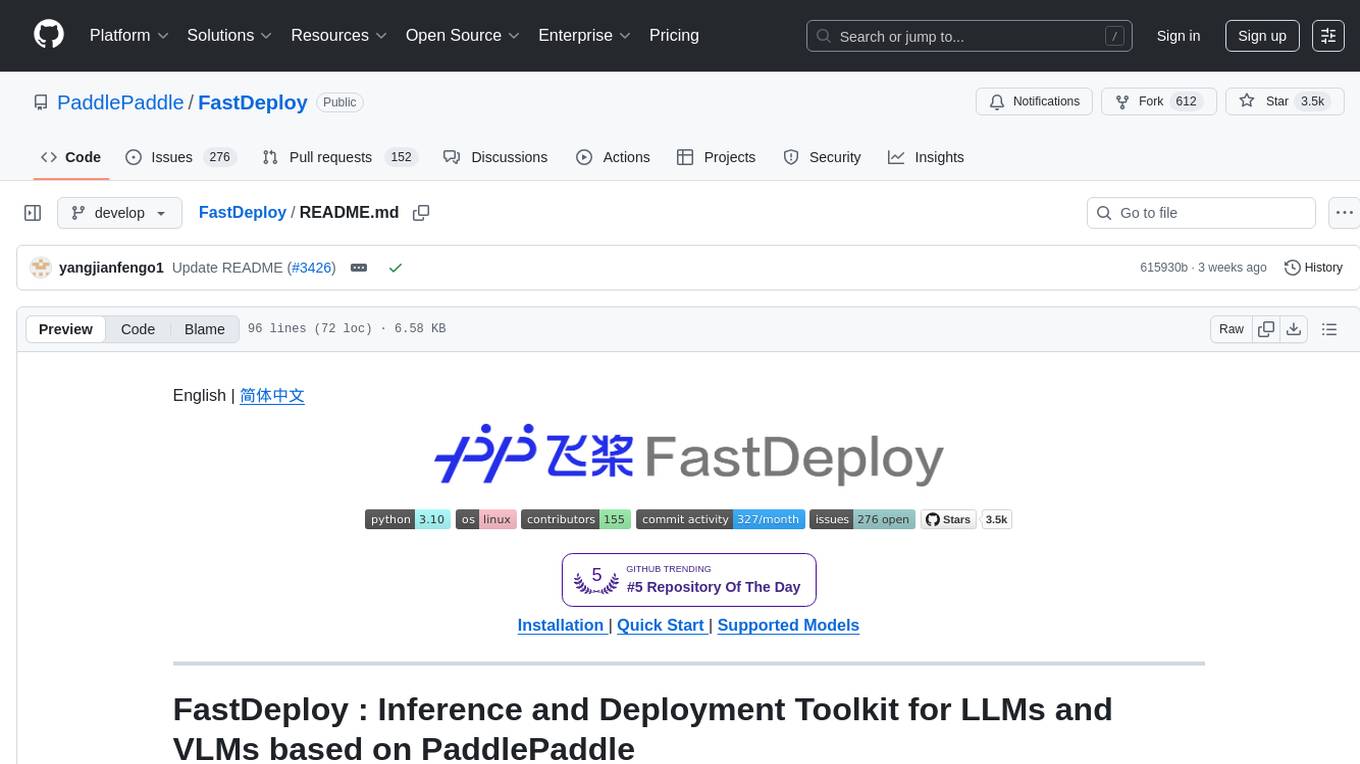
FastDeploy
FastDeploy is an inference and deployment toolkit for large language models and visual language models based on PaddlePaddle. It provides production-ready deployment solutions with core acceleration technologies such as load-balanced PD disaggregation, unified KV cache transmission, OpenAI API server compatibility, comprehensive quantization format support, advanced acceleration techniques, and multi-hardware support. The toolkit supports various hardware platforms like NVIDIA GPUs, Kunlunxin XPUs, Iluvatar GPUs, Enflame GCUs, and Hygon DCUs, with plans for expanding support to Ascend NPU and MetaX GPU. FastDeploy aims to optimize resource utilization, throughput, and performance for inference and deployment tasks.
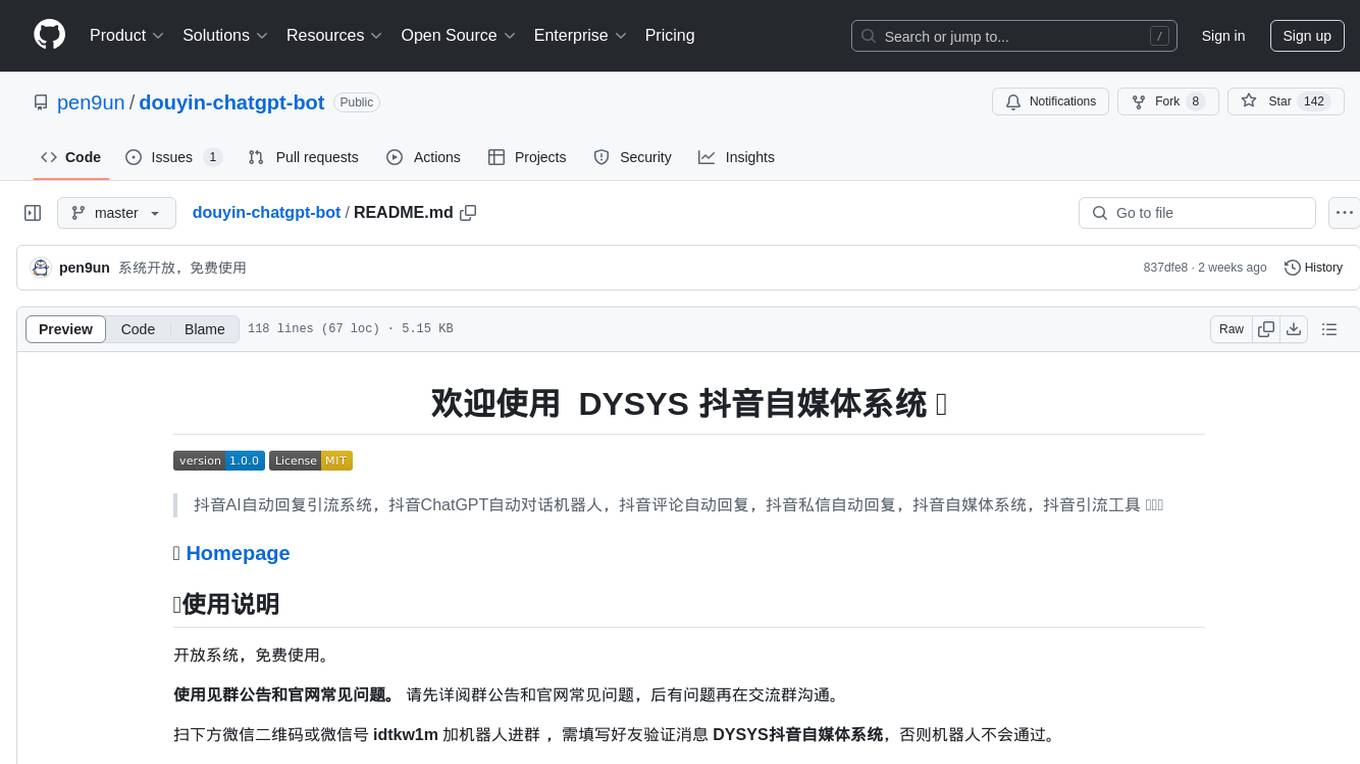
douyin-chatgpt-bot
Douyin ChatGPT Bot is an AI-driven system for automatic replies on Douyin, including comment and private message replies. It offers features such as comment filtering, customizable robot responses, and automated account management. The system aims to enhance user engagement and brand image on the Douyin platform, providing a seamless experience for managing interactions with followers and potential customers.
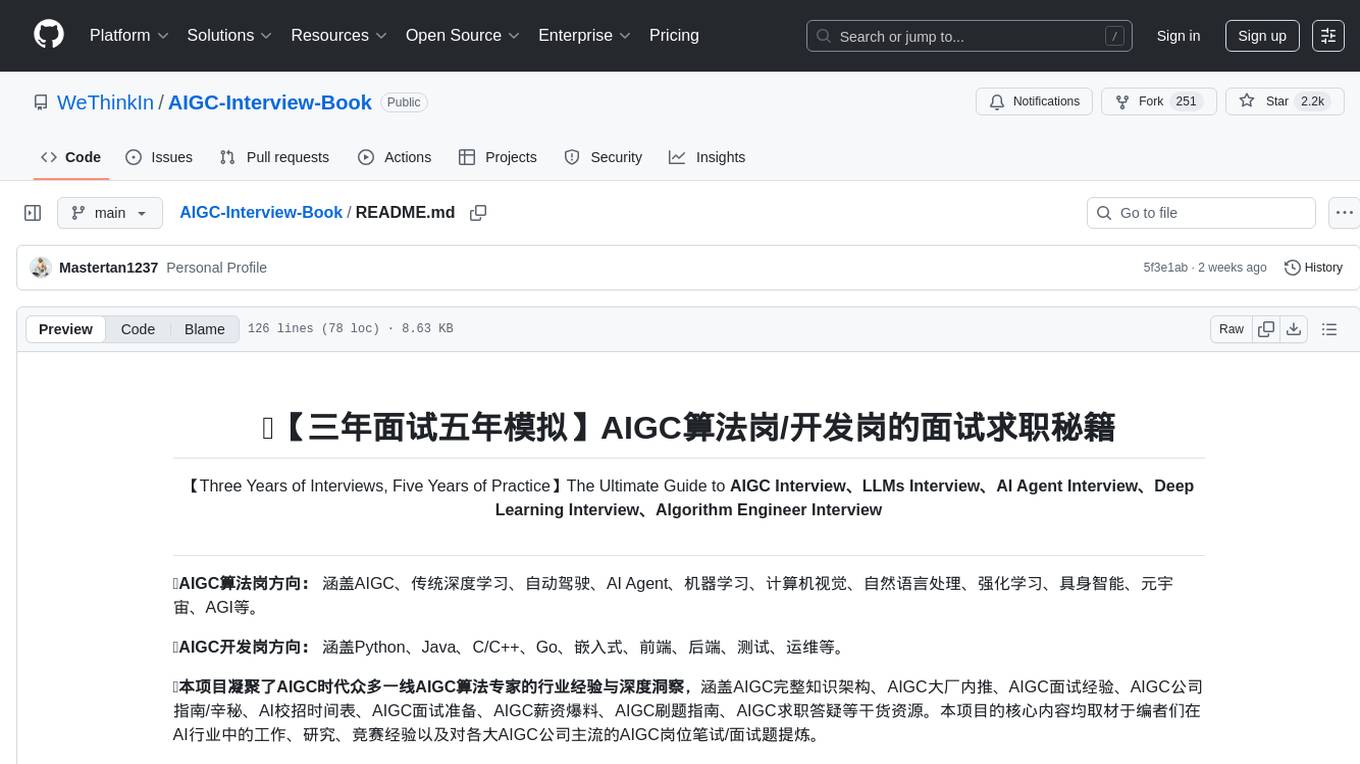
AIGC-Interview-Book
AIGC-Interview-Book is the ultimate guide for AIGC algorithm and development job interviews, covering a wide range of topics such as AIGC, traditional deep learning, autonomous driving, AI agent, machine learning, computer vision, natural language processing, reinforcement learning, embodied intelligence, metaverse, AGI, Python, Java, C/C++, Go, embedded systems, front-end, back-end, testing, and operations. The repository consolidates industry experience and insights from frontline AIGC algorithm experts, providing resources on AIGC knowledge framework, internal referrals at AIGC big companies, interview experiences, company guides, AI campus recruitment schedule, interview preparation, salary insights, coding guide, and job-seeking Q&A. It serves as a valuable resource for AIGC-related professionals, students, and job seekers, offering insights and guidance for career advancement and job interviews in the AIGC field.
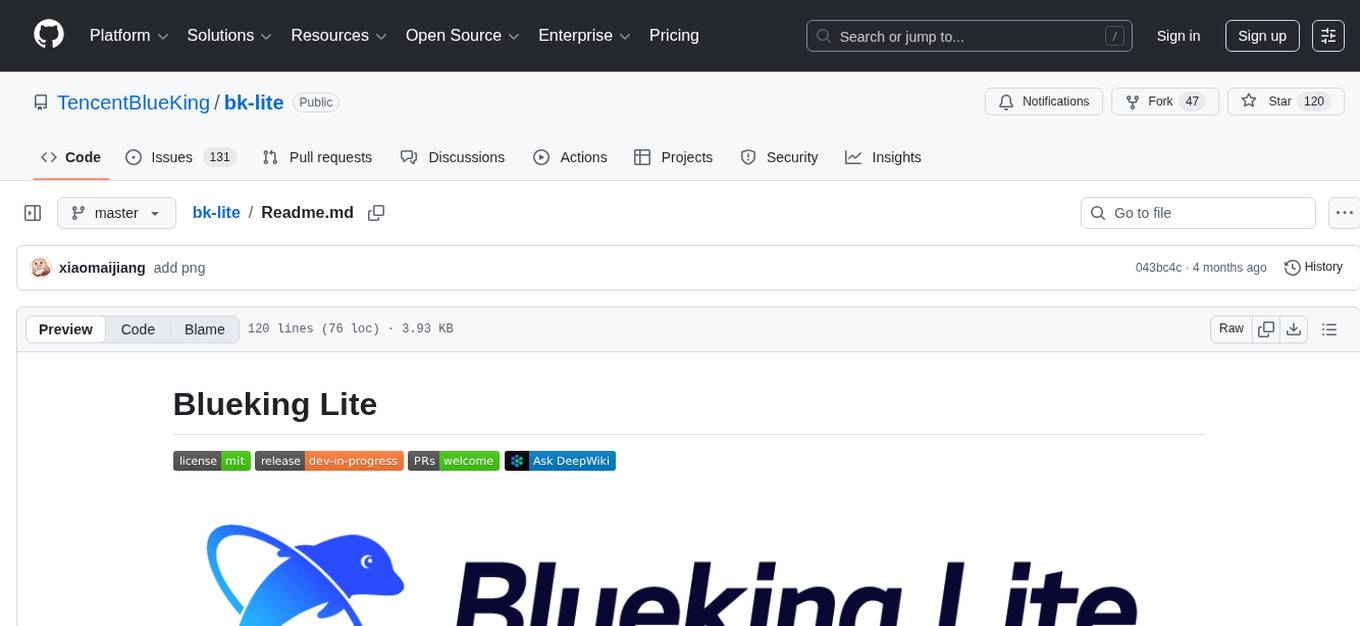
bk-lite
Blueking Lite is an AI First lightweight operation product with low deployment resource requirements, low usage costs, and progressive experience, providing essential tools for operation administrators.
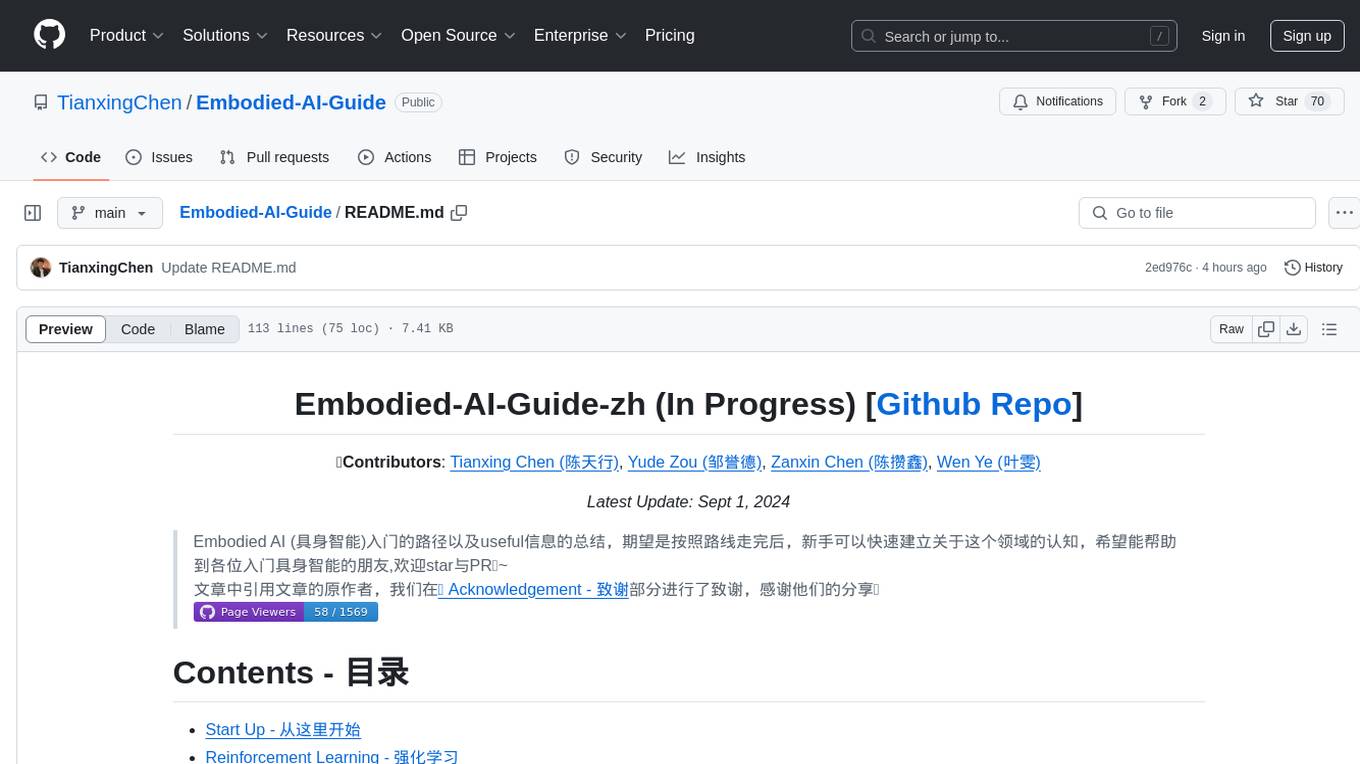
Embodied-AI-Guide
Embodied-AI-Guide is a comprehensive guide for beginners to understand Embodied AI, focusing on the path of entry and useful information in the field. It covers topics such as Reinforcement Learning, Imitation Learning, Large Language Model for Robotics, 3D Vision, Control, Benchmarks, and provides resources for building cognitive understanding. The repository aims to help newcomers quickly establish knowledge in the field of Embodied AI.
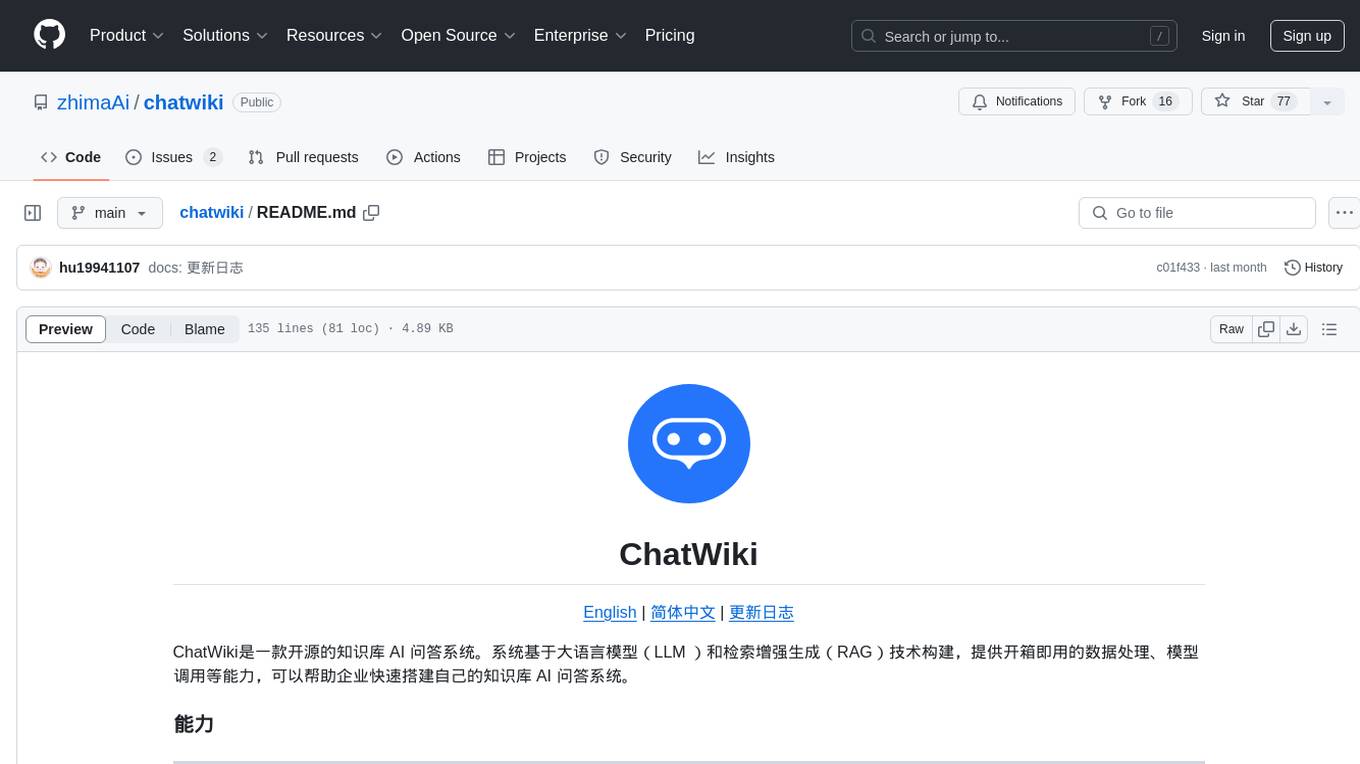
chatwiki
ChatWiki is an open-source knowledge base AI question-answering system. It is built on large language models (LLM) and retrieval-augmented generation (RAG) technologies, providing out-of-the-box data processing, model invocation capabilities, and helping enterprises quickly build their own knowledge base AI question-answering systems. It offers exclusive AI question-answering system, easy integration of models, data preprocessing, simple user interface design, and adaptability to different business scenarios.
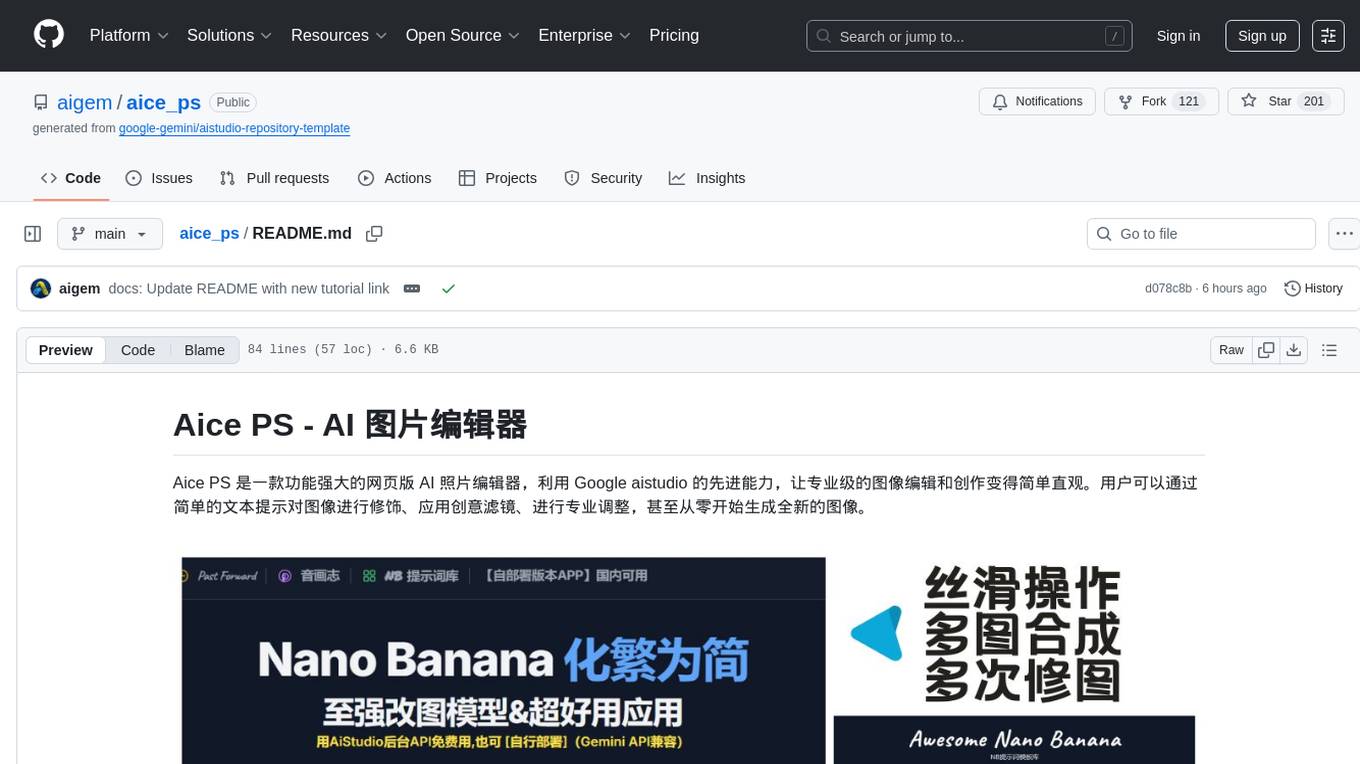
aice_ps
Aice PS is a powerful web-based AI photo editor that utilizes Google aistudio's advanced capabilities to make professional image editing and creation simple and intuitive. Users can enhance images, apply creative filters, make professional adjustments, and even generate new images from scratch using simple text prompts. The tool combines various cutting-edge AI capabilities to provide a one-stop creative image and video solution, including AI image generation, intelligent editing, creative filters, professional adjustments, AI inspiration suggestions, intelligent synthesis, texture overlay, one-click cutout, time travel effects, BeatSync for music and image synchronization, NB prompt word library, basic editing toolkit, and more.
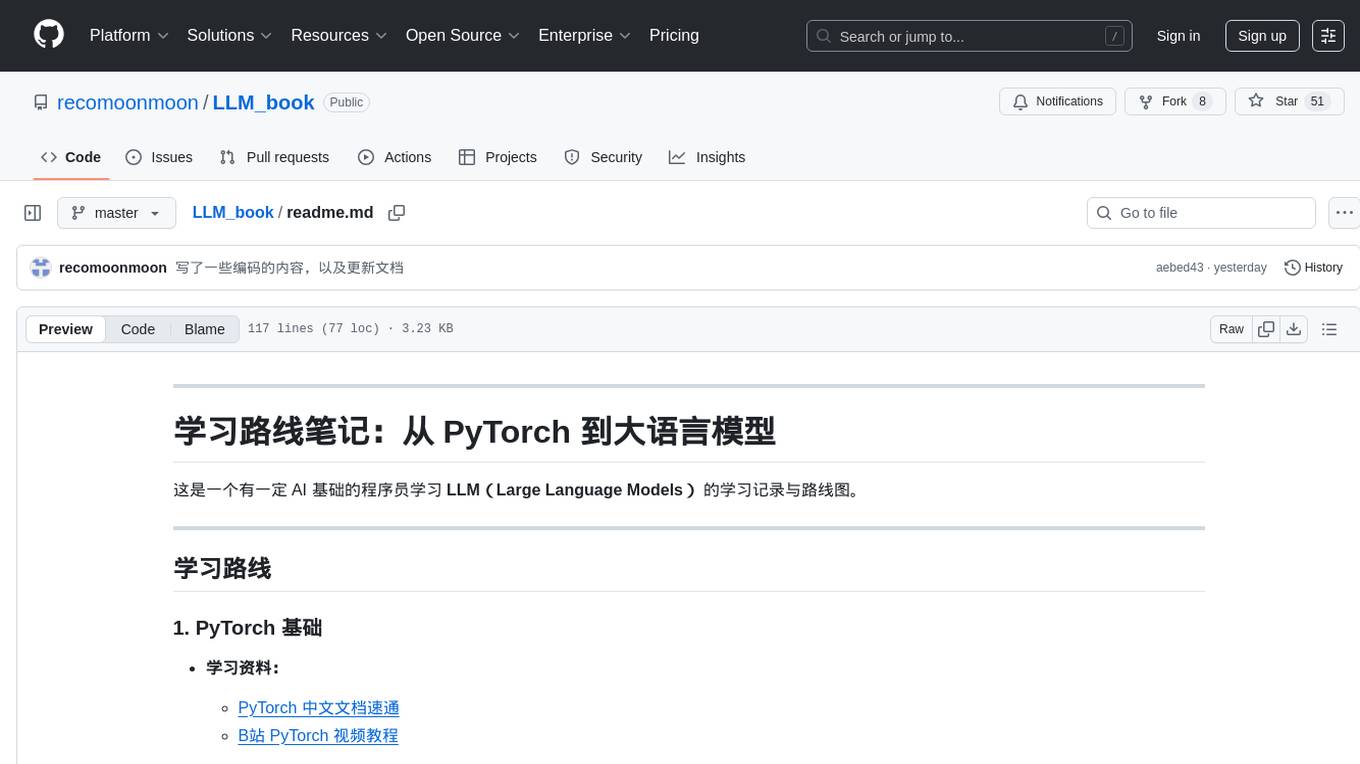
LLM_book
LLM_book is a learning record and roadmap for programmers with a certain AI foundation to learn Large Language Models (LLM). It covers topics such as PyTorch basics, Transformer architecture, langchain basics, foundational concepts of large models, fine-tuning methods, RAG (Retrieval-Augmented Generation), and building intelligent agents using LLM. The repository provides learning materials, code implementations, and documentation to help users progress in understanding and implementing LLM technologies.
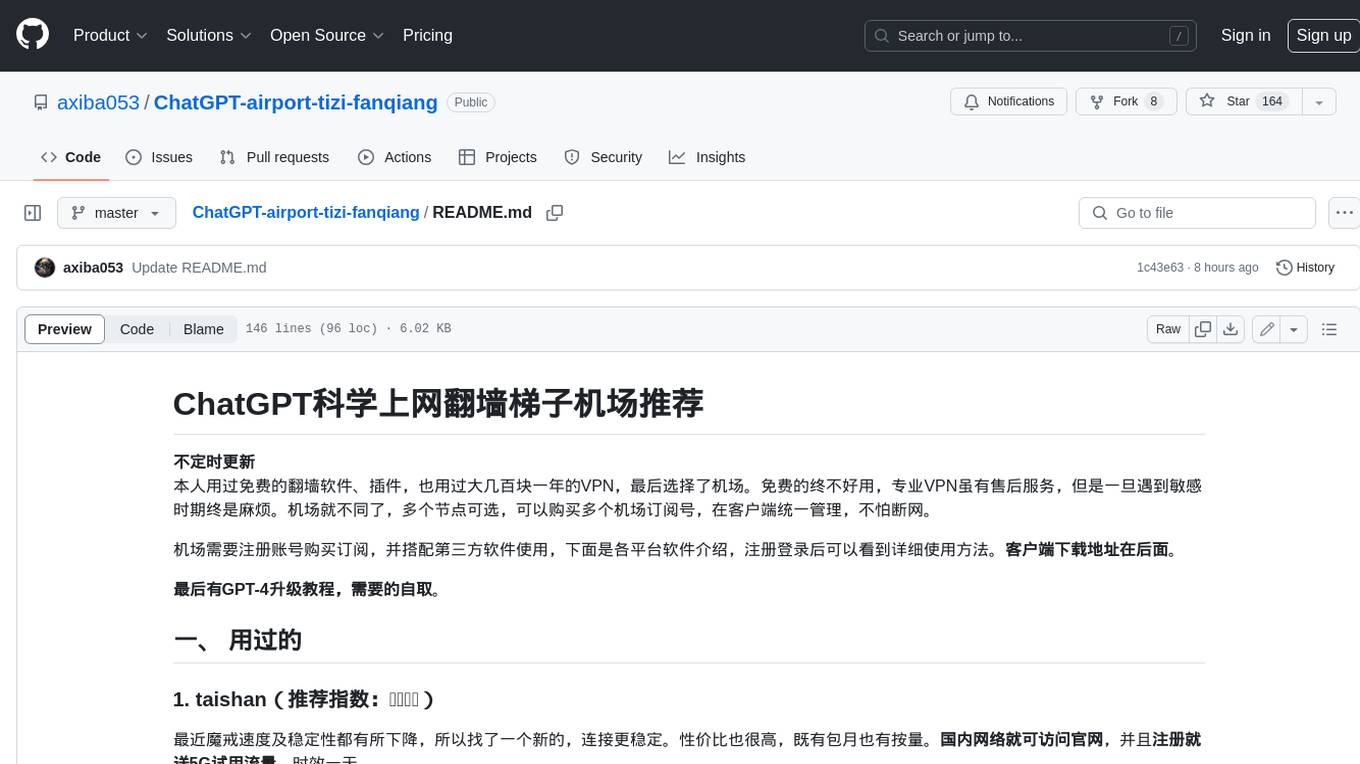
ChatGPT-airport-tizi-fanqiang
This repository provides a curated list of recommended airport proxies for accessing ChatGPT and other AI tools while bypassing internet restrictions. The proxies are tested and verified to ensure reliability and stability. The readme includes detailed instructions on how to set up and use the proxies with various devices and platforms. Additionally, the repository offers advanced tutorials on upgrading to GPT-4/Plus, deploying a 24/7 ChatGPT微信机器人 server, and using Claude-3 securely and for free.
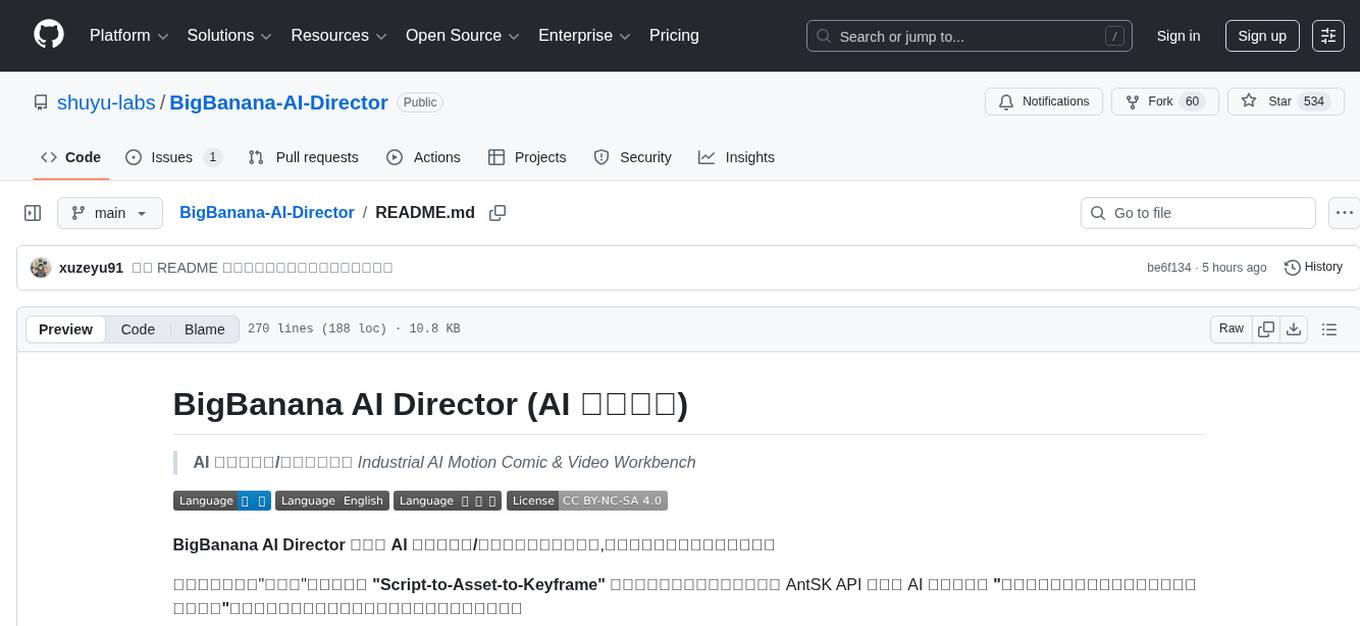
BigBanana-AI-Director
BigBanana AI Director is an industrial AI motion comic and video workbench platform that provides a one-stop solution for creating short dramas and comics. It utilizes a 'Script-to-Asset-to-Keyframe' workflow with advanced AI models to automate the process from script to final production, ensuring precise control over character consistency, scene continuity, and camera movements. The tool is designed to streamline the production process for creators, enabling efficient production from idea to finished product.
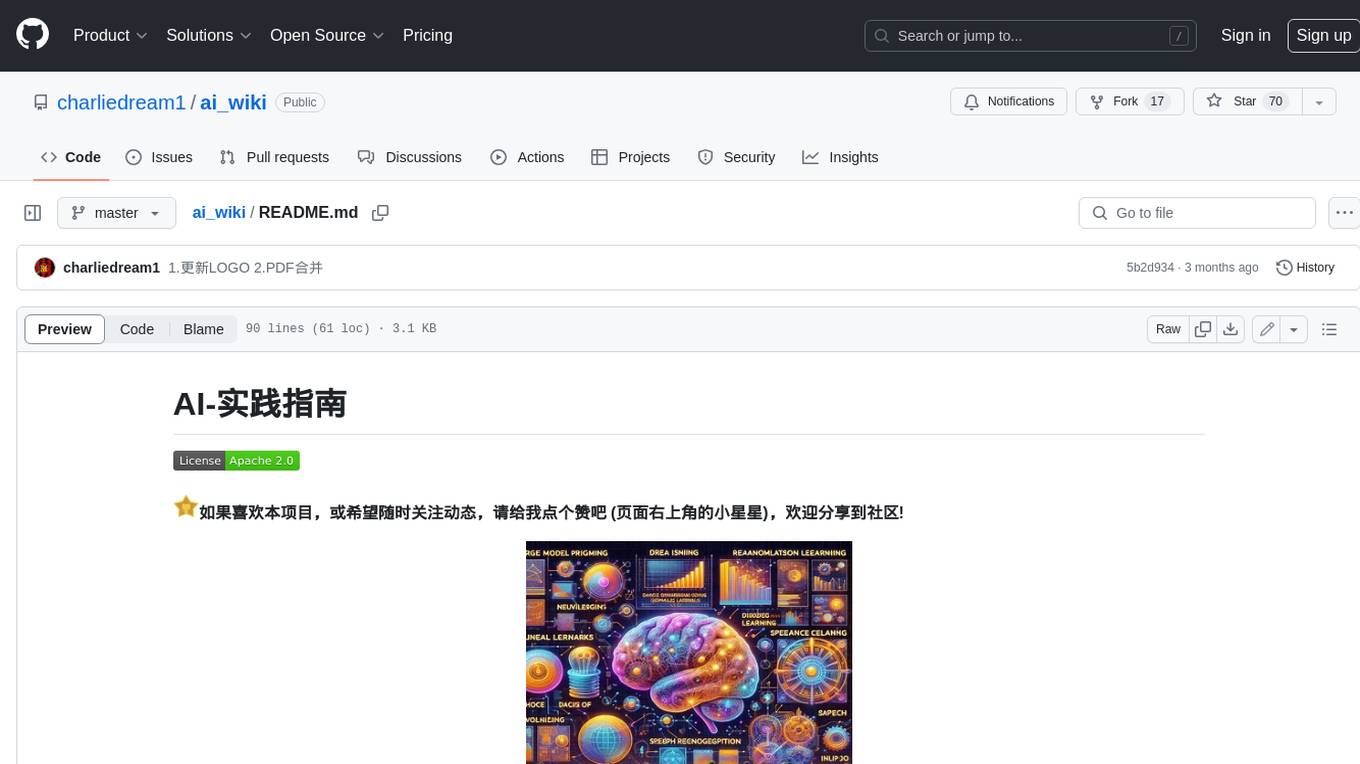
ai_wiki
This repository provides a comprehensive collection of resources, open-source tools, and knowledge related to quantitative analysis. It serves as a valuable knowledge base and navigation guide for individuals interested in various aspects of quantitative investing, including platforms, programming languages, mathematical foundations, machine learning, deep learning, and practical applications. The repository is well-structured and organized, with clear sections covering different topics. It includes resources on system platforms, programming codes, mathematical foundations, algorithm principles, machine learning, deep learning, reinforcement learning, graph networks, model deployment, and practical applications. Additionally, there are dedicated sections on quantitative trading and investment, as well as large models. The repository is actively maintained and updated, ensuring that users have access to the latest information and resources.
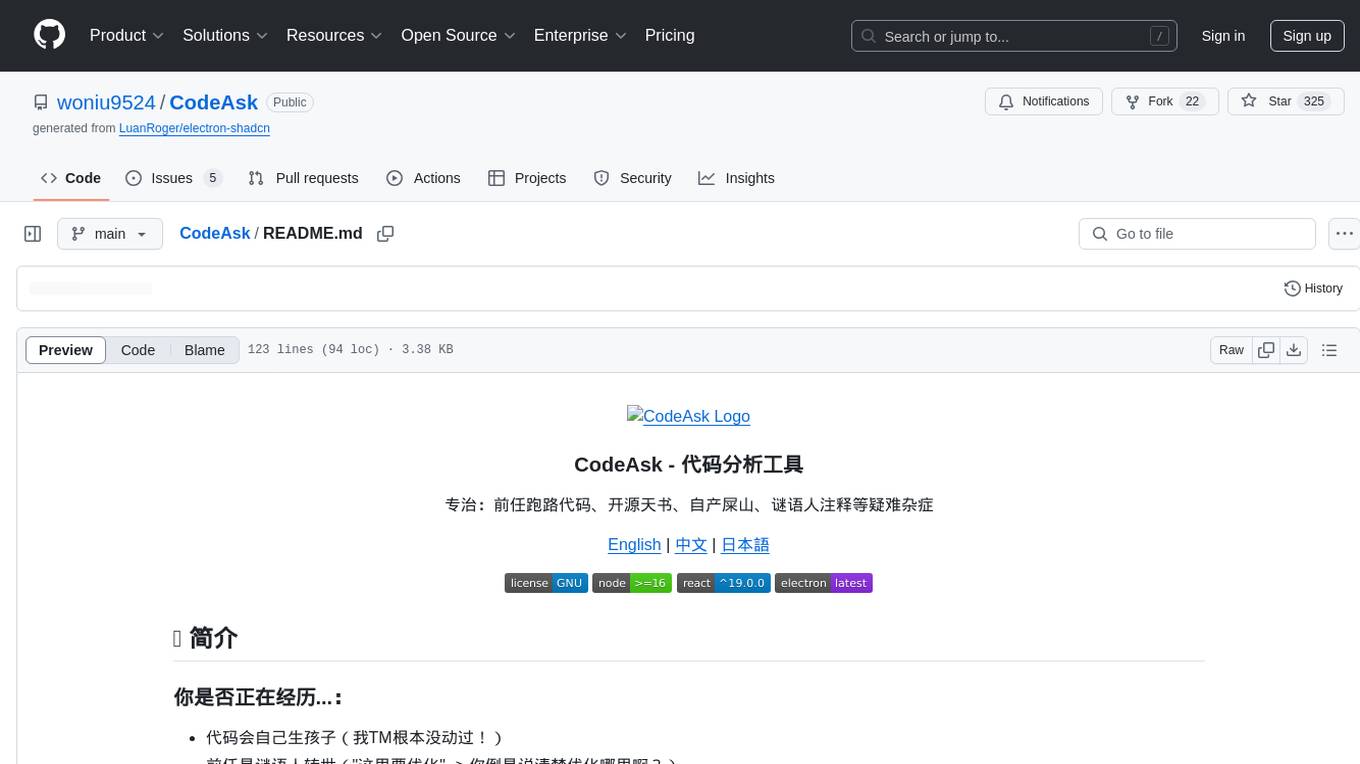
CodeAsk
CodeAsk is a code analysis tool designed to tackle complex issues such as code that seems to self-replicate, cryptic comments left by predecessors, messy and unclear code, and long-lasting temporary solutions. It offers intelligent code organization and analysis, security vulnerability detection, code quality assessment, and other interesting prompts to help users understand and work with legacy code more efficiently. The tool aims to translate 'legacy code mountains' into understandable language, creating an illusion of comprehension and facilitating knowledge transfer to new team members.
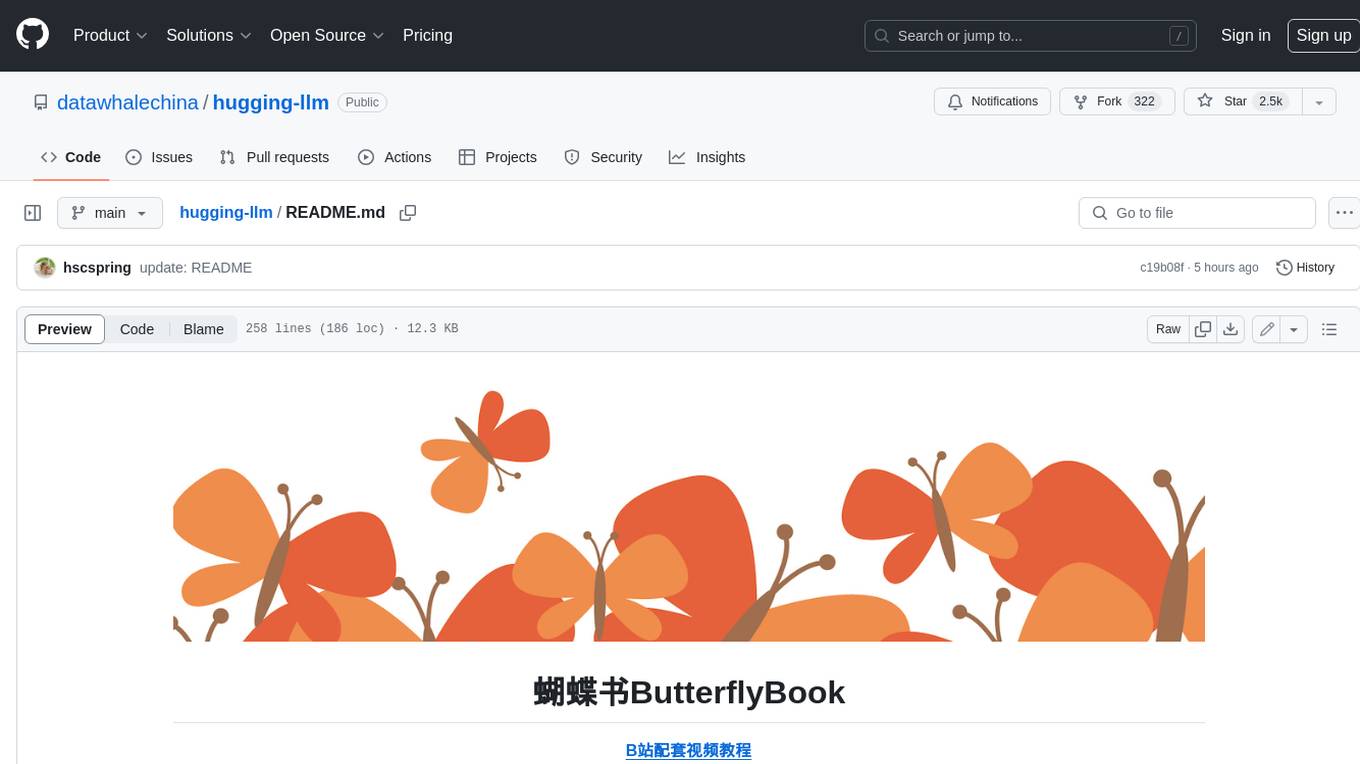
hugging-llm
HuggingLLM is a project that aims to introduce ChatGPT to a wider audience, particularly those interested in using the technology to create new products or applications. The project focuses on providing practical guidance on how to use ChatGPT-related APIs to create new features and applications. It also includes detailed background information and system design introductions for relevant tasks, as well as example code and implementation processes. The project is designed for individuals with some programming experience who are interested in using ChatGPT for practical applications, and it encourages users to experiment and create their own applications and demos.
For similar tasks

Interview-for-Algorithm-Engineer
This repository provides a collection of interview questions and answers for algorithm engineers. The questions are organized by topic, and each question includes a detailed explanation of the answer. This repository is a valuable resource for anyone preparing for an algorithm engineering interview.
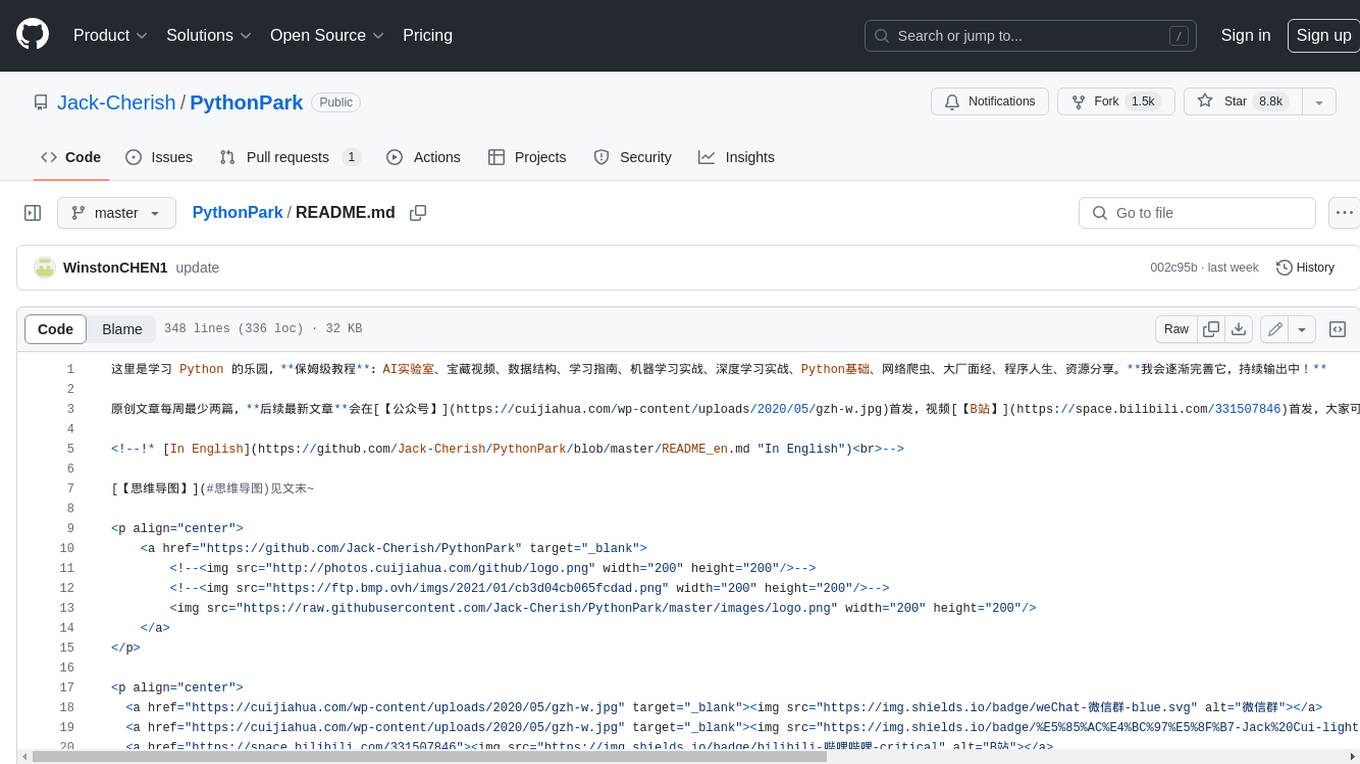
PythonPark
PythonPark is a paradise for learning Python, providing babysitter-level tutorials on AI labs, treasure videos, data structures, study guides, machine learning practicals, deep learning practicals, Python basics, web scraping, big company interview experiences, programming life, and resource sharing. Original articles are published at least twice a week, with the latest articles being first released on WeChat and videos on Bilibili. Join the WeChat group for technical discussions or to provide feedback. Continuously improving and outputting content!
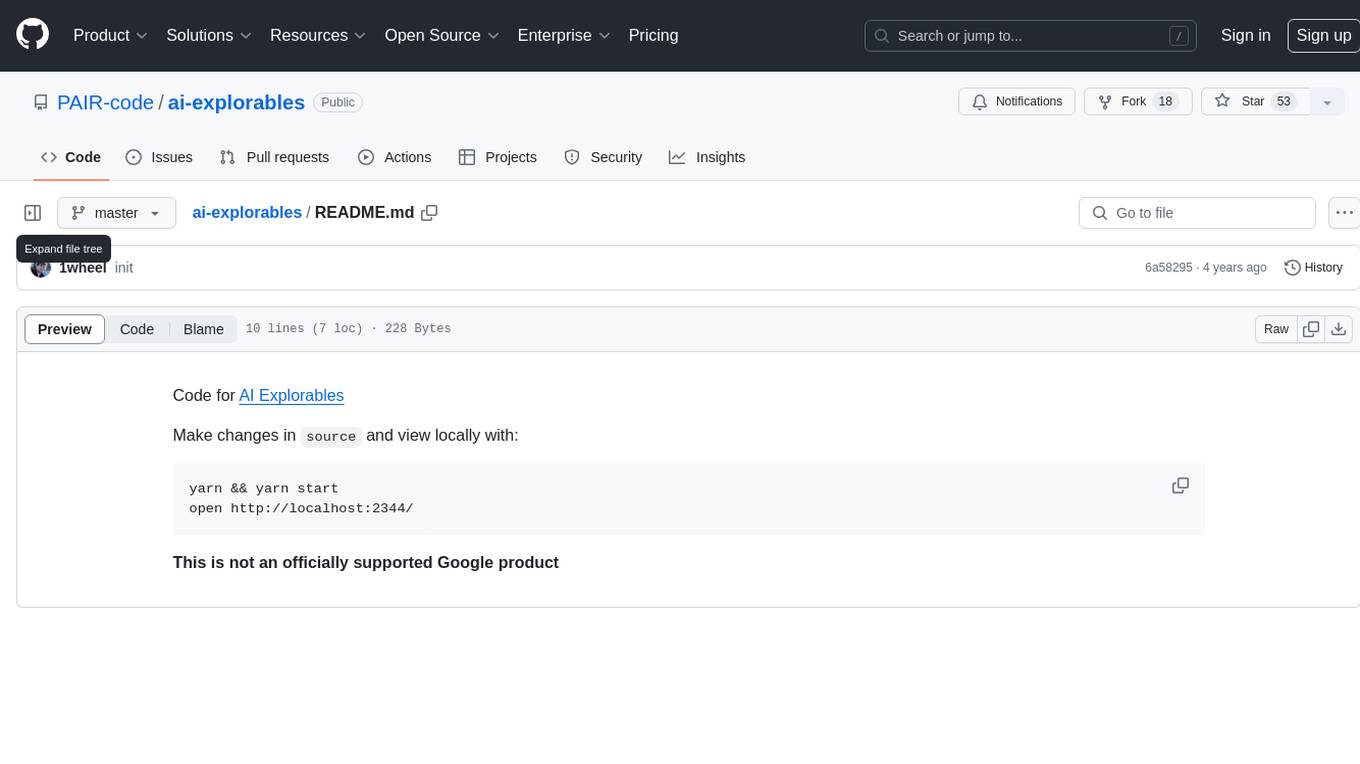
ai-explorables
The ai-explorables repository contains code for AI Explorables, a tool that allows users to make changes in the source code and view the changes locally. It is not an officially supported Google product.
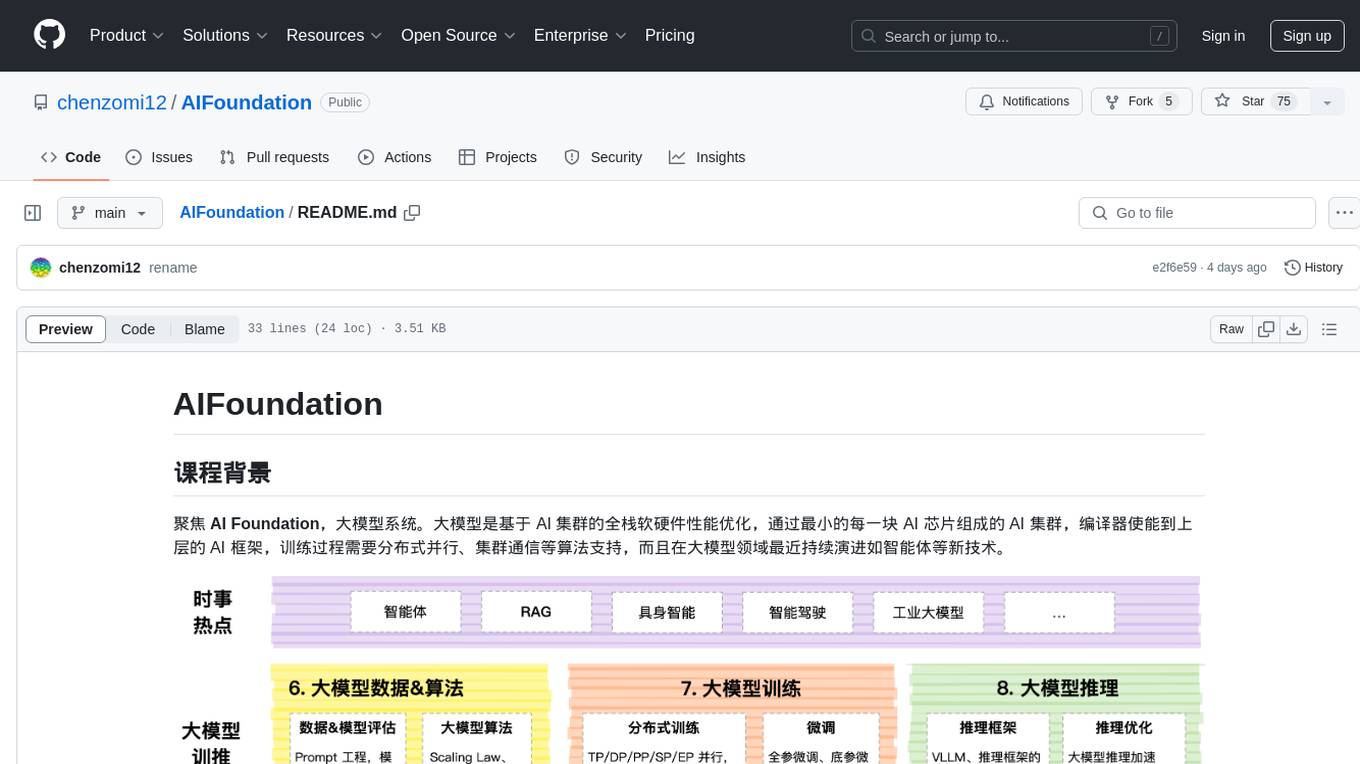
AIFoundation
AIFoundation focuses on AI Foundation, large model systems. Large models optimize the performance of full-stack hardware and software based on AI clusters. The training process requires distributed parallelism, cluster communication algorithms, and continuous evolution in the field of large models such as intelligent agents. The course covers modules like AI chip principles, communication & storage, AI clusters, computing architecture, communication architecture, large model algorithms, training, inference, and analysis of hot technologies in the large model field.
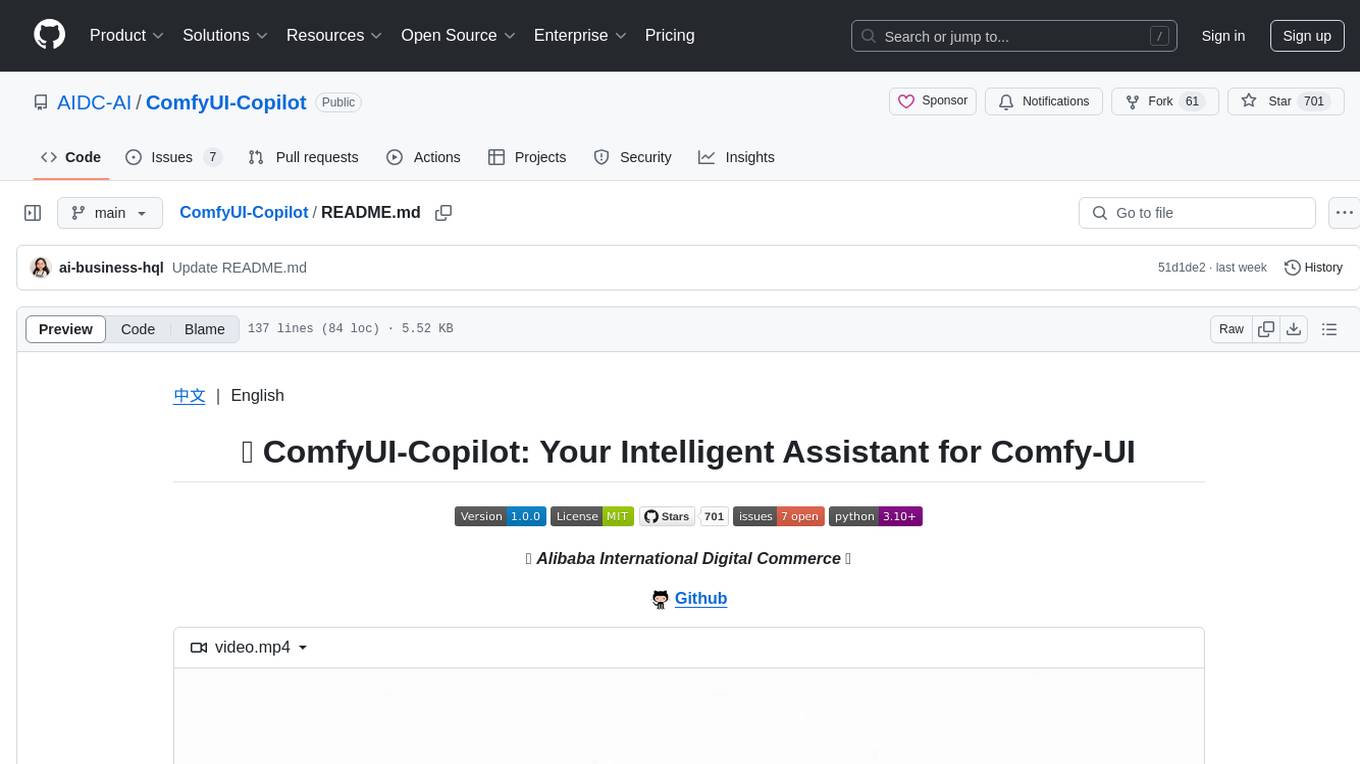
ComfyUI-Copilot
ComfyUI-Copilot is an intelligent assistant built on the Comfy-UI framework that simplifies and enhances the AI algorithm debugging and deployment process through natural language interactions. It offers intuitive node recommendations, workflow building aids, and model querying services to streamline development processes. With features like interactive Q&A bot, natural language node suggestions, smart workflow assistance, and model querying, ComfyUI-Copilot aims to lower the barriers to entry for beginners, boost development efficiency with AI-driven suggestions, and provide real-time assistance for developers.
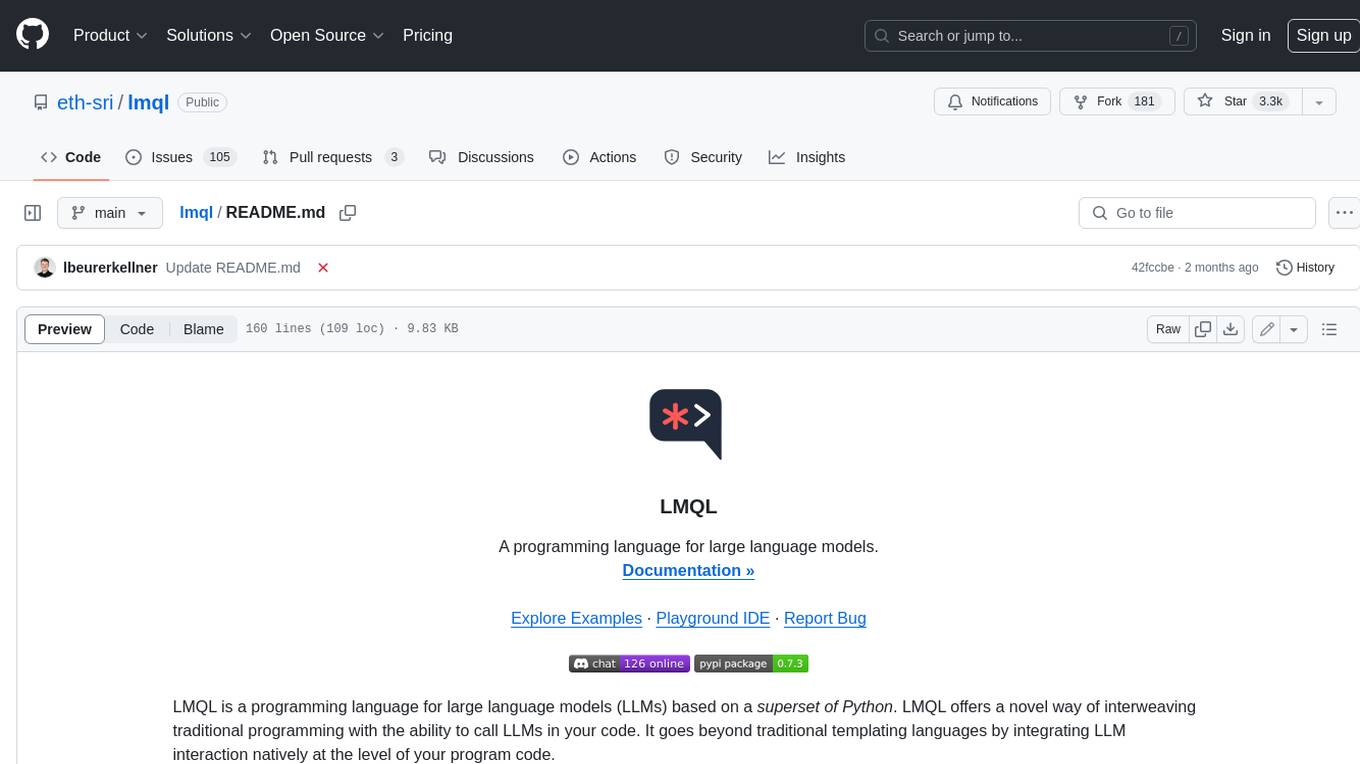
lmql
LMQL is a programming language designed for large language models (LLMs) that offers a unique way of integrating traditional programming with LLM interaction. It allows users to write programs that combine algorithmic logic with LLM calls, enabling model reasoning capabilities within the context of the program. LMQL provides features such as Python syntax integration, rich control-flow options, advanced decoding techniques, powerful constraints via logit masking, runtime optimization, sync and async API support, multi-model compatibility, and extensive applications like JSON decoding and interactive chat interfaces. The tool also offers library integration, flexible tooling, and output streaming options for easy model output handling.
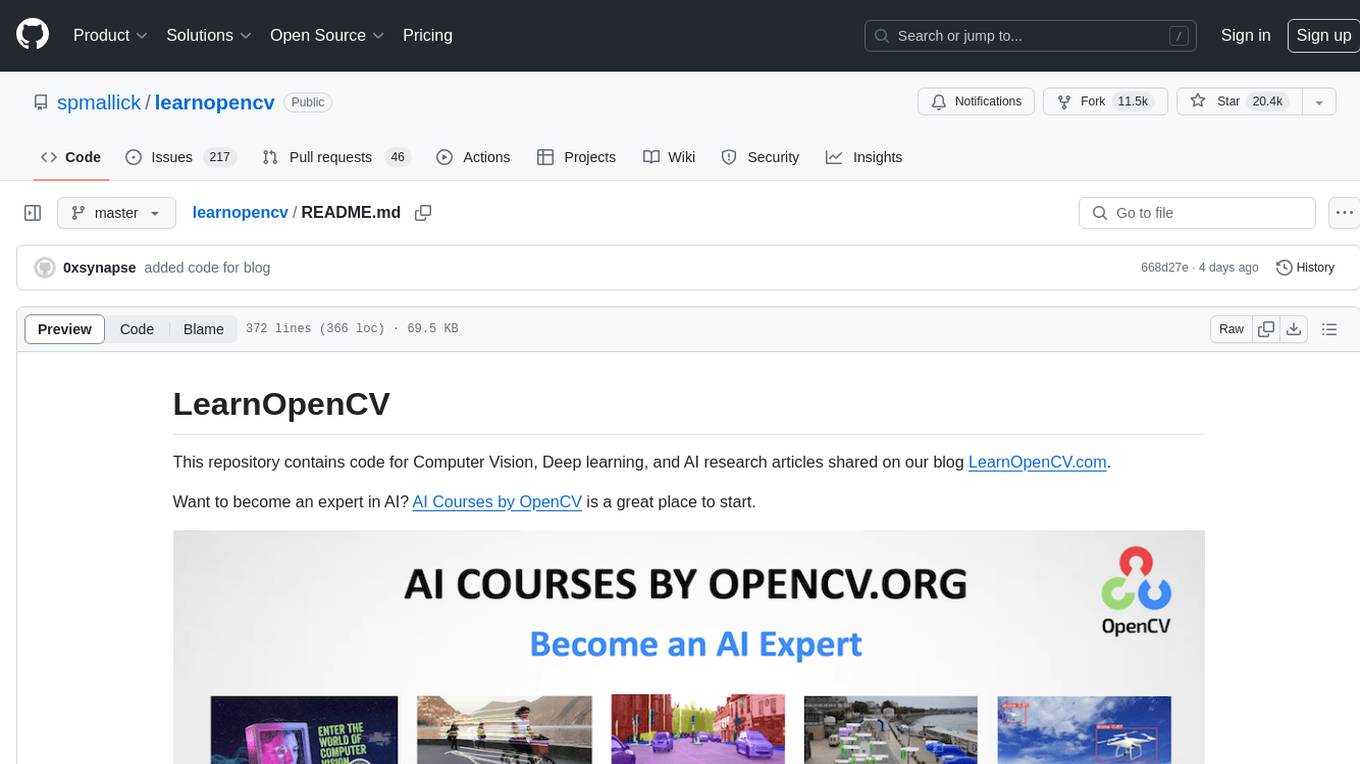
learnopencv
LearnOpenCV is a repository containing code for Computer Vision, Deep learning, and AI research articles shared on the blog LearnOpenCV.com. It serves as a resource for individuals looking to enhance their expertise in AI through various courses offered by OpenCV. The repository includes a wide range of topics such as image inpainting, instance segmentation, robotics, deep learning models, and more, providing practical implementations and code examples for readers to explore and learn from.
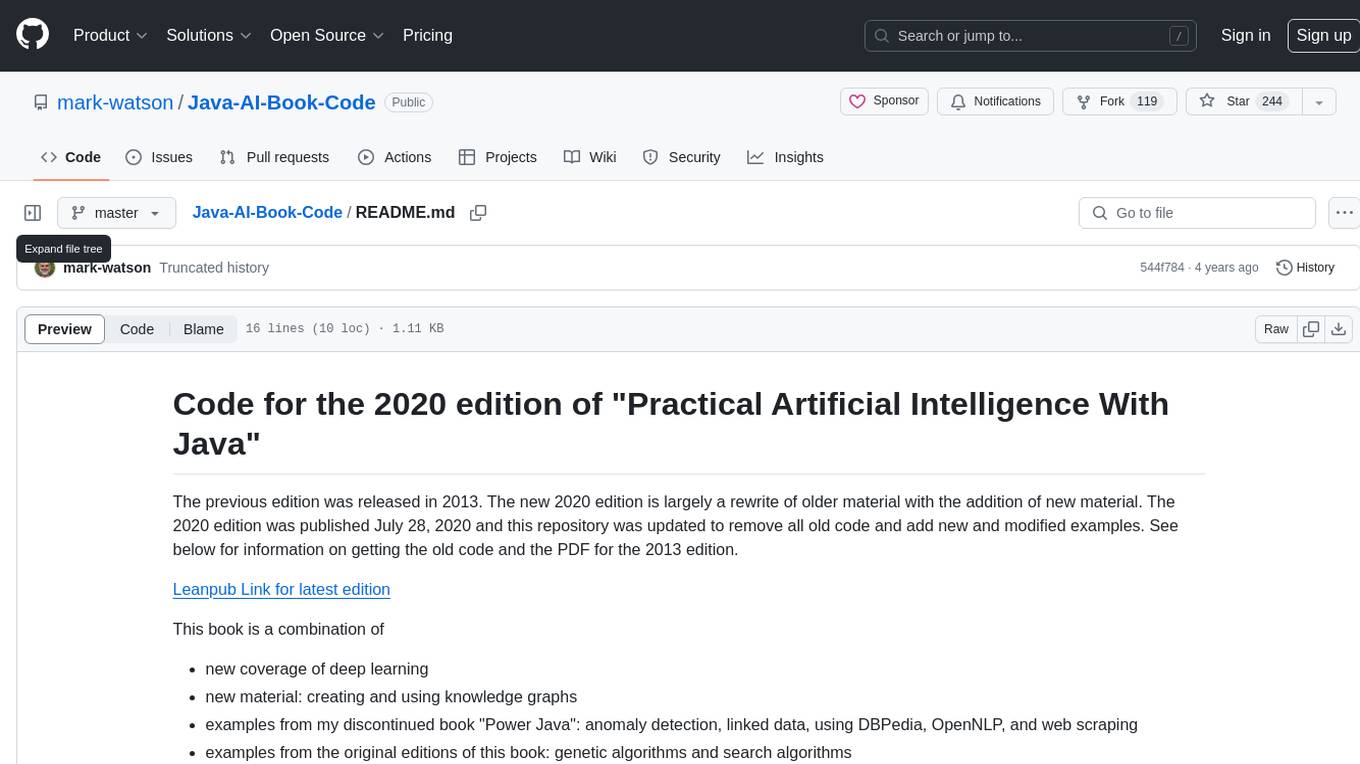
Java-AI-Book-Code
The Java-AI-Book-Code repository contains code examples for the 2020 edition of 'Practical Artificial Intelligence With Java'. It is a comprehensive update of the previous 2013 edition, featuring new content on deep learning, knowledge graphs, anomaly detection, linked data, genetic algorithms, search algorithms, and more. The repository serves as a valuable resource for Java developers interested in AI applications and provides practical implementations of various AI techniques and algorithms.
For similar jobs

Interview-for-Algorithm-Engineer
This repository provides a collection of interview questions and answers for algorithm engineers. The questions are organized by topic, and each question includes a detailed explanation of the answer. This repository is a valuable resource for anyone preparing for an algorithm engineering interview.
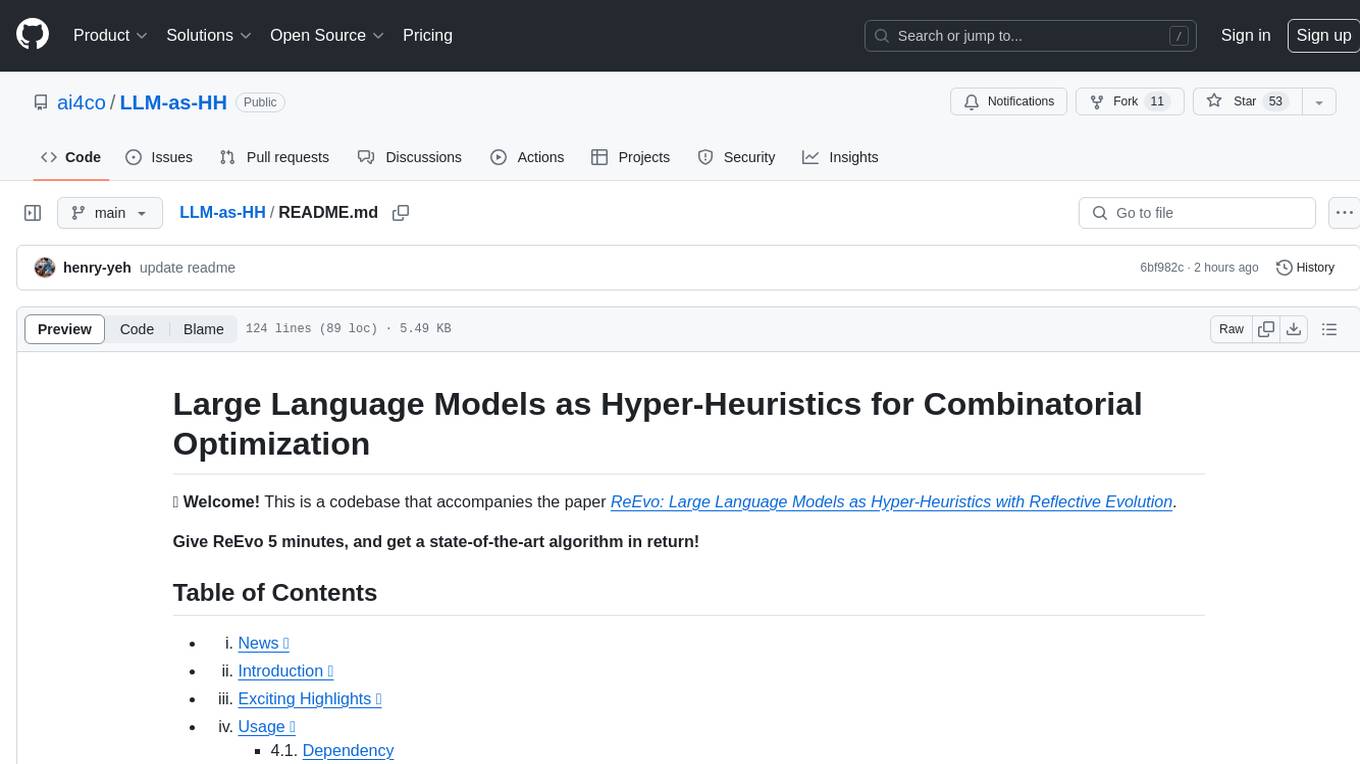
LLM-as-HH
LLM-as-HH is a codebase that accompanies the paper ReEvo: Large Language Models as Hyper-Heuristics with Reflective Evolution. It introduces Language Hyper-Heuristics (LHHs) that leverage LLMs for heuristic generation with minimal manual intervention and open-ended heuristic spaces. Reflective Evolution (ReEvo) is presented as a searching framework that emulates the reflective design approach of human experts while surpassing human capabilities with scalable LLM inference, Internet-scale domain knowledge, and powerful evolutionary search. The tool can improve various algorithms on problems like Traveling Salesman Problem, Capacitated Vehicle Routing Problem, Orienteering Problem, Multiple Knapsack Problems, Bin Packing Problem, and Decap Placement Problem in both black-box and white-box settings.

universal
The Universal Numbers Library is a header-only C++ template library designed for universal number arithmetic, offering alternatives to native integer and floating-point for mixed-precision algorithm development and optimization. It tailors arithmetic types to the application's precision and dynamic range, enabling improved application performance and energy efficiency. The library provides fast implementations of special IEEE-754 formats like quarter precision, half-precision, and quad precision, as well as vendor-specific extensions. It supports static and elastic integers, decimals, fixed-points, rationals, linear floats, tapered floats, logarithmic, interval, and adaptive-precision integers, rationals, and floats. The library is suitable for AI, DSP, HPC, and HFT algorithms.
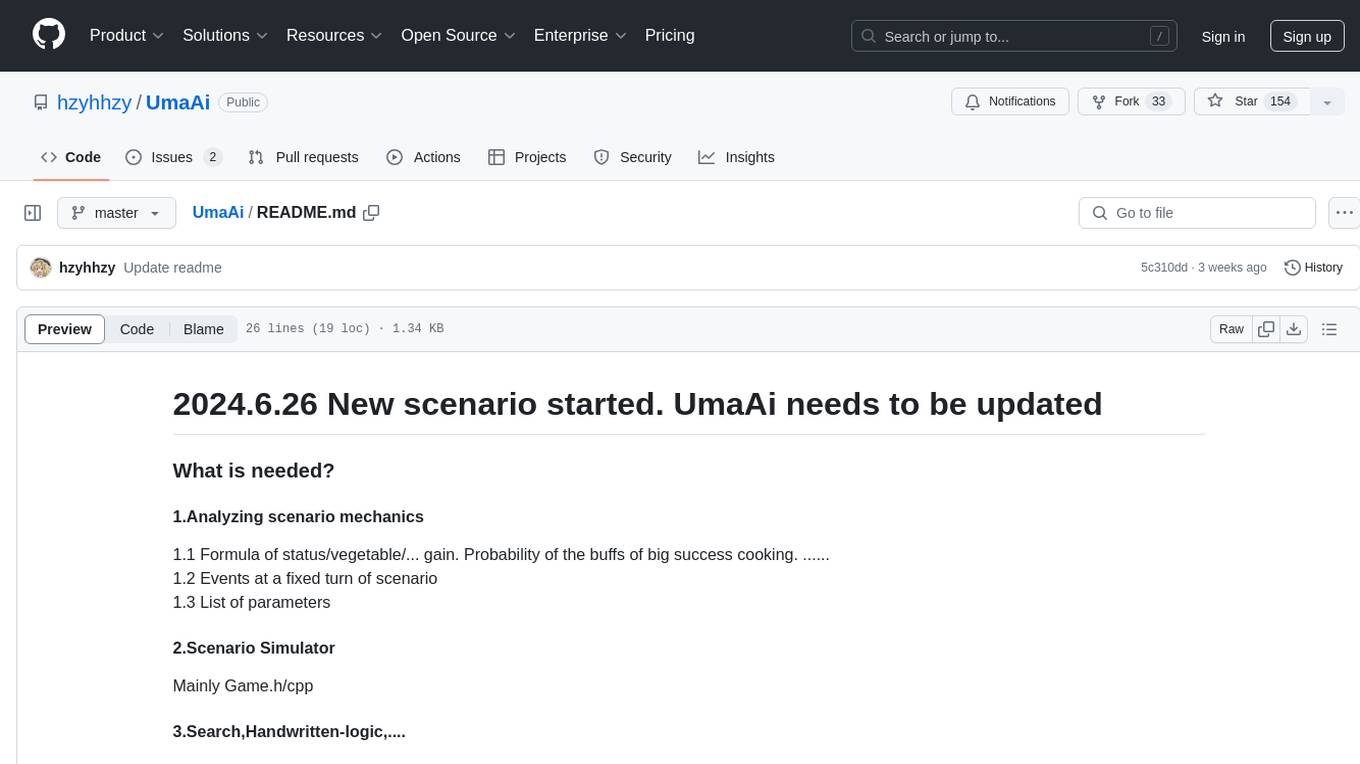
UmaAi
UmaAi is a tool designed for algorithm learning purposes, specifically focused on analyzing scenario mechanics in a game. It provides functionalities such as simulating scenarios, searching, handwritten-logic, and OCR integration. The tool allows users to modify settings in config.h for evaluating cardset strength, simulating games, and understanding game mechanisms through the source code. It emphasizes that it should not be used for illegal purposes and is intended for educational use only.
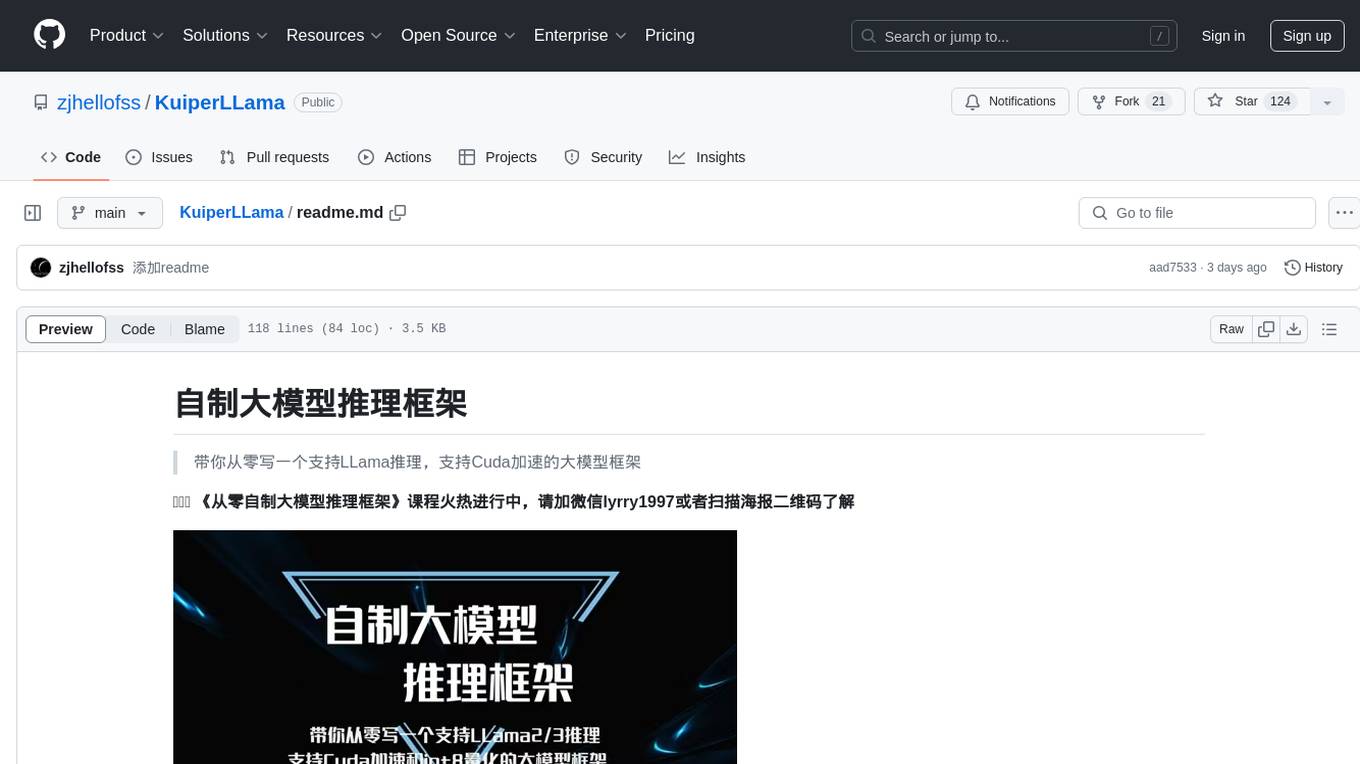
KuiperLLama
KuiperLLama is a custom large model inference framework that guides users in building a LLama-supported inference framework with Cuda acceleration from scratch. The framework includes modules for architecture design, LLama2 model support, model quantization, Cuda basics, operator implementation, and fun tasks like text generation and storytelling. It also covers learning other commercial inference frameworks for comprehensive understanding. The project provides detailed tutorials and resources for developing and optimizing large models for efficient inference.
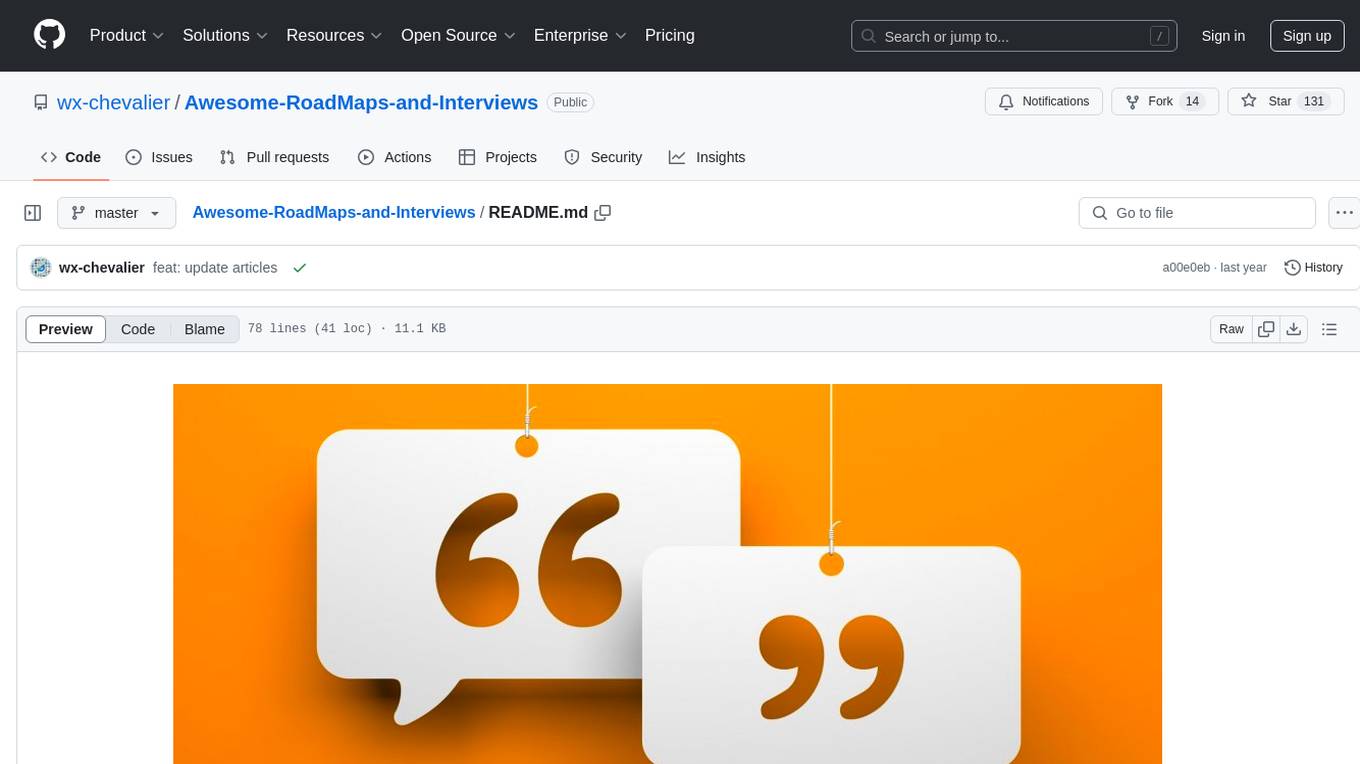
Awesome-RoadMaps-and-Interviews
Awesome RoadMaps and Interviews is a comprehensive repository that aims to provide guidance for technical interviews and career development in the ITCS field. It covers a wide range of topics including interview strategies, technical knowledge, and practical insights gained from years of interviewing experience. The repository emphasizes the importance of combining theoretical knowledge with practical application, and encourages users to expand their interview preparation beyond just algorithms. It also offers resources for enhancing knowledge breadth, depth, and programming skills through curated roadmaps, mind maps, cheat sheets, and coding snippets. The content is structured to help individuals navigate various technical roles and technologies, fostering continuous learning and professional growth.
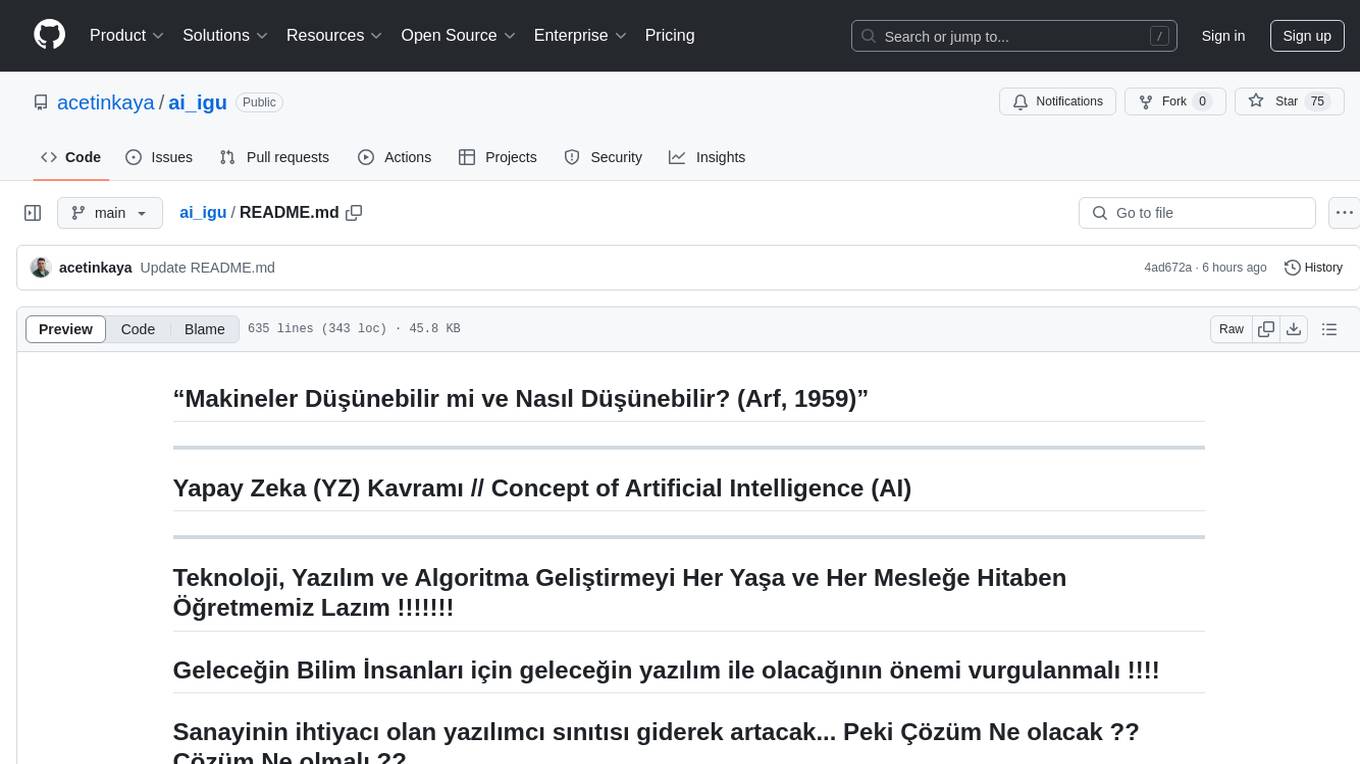
ai_igu
AI-IGU is a GitHub repository focused on Artificial Intelligence (AI) concepts, technology, software development, and algorithm improvement for all ages and professions. It emphasizes the importance of future software for future scientists and the increasing need for software developers in the industry. The repository covers various topics related to AI, including machine learning, deep learning, data mining, data science, big data, and more. It provides educational materials, practical examples, and hands-on projects to enhance software development skills and create awareness in the field of AI.
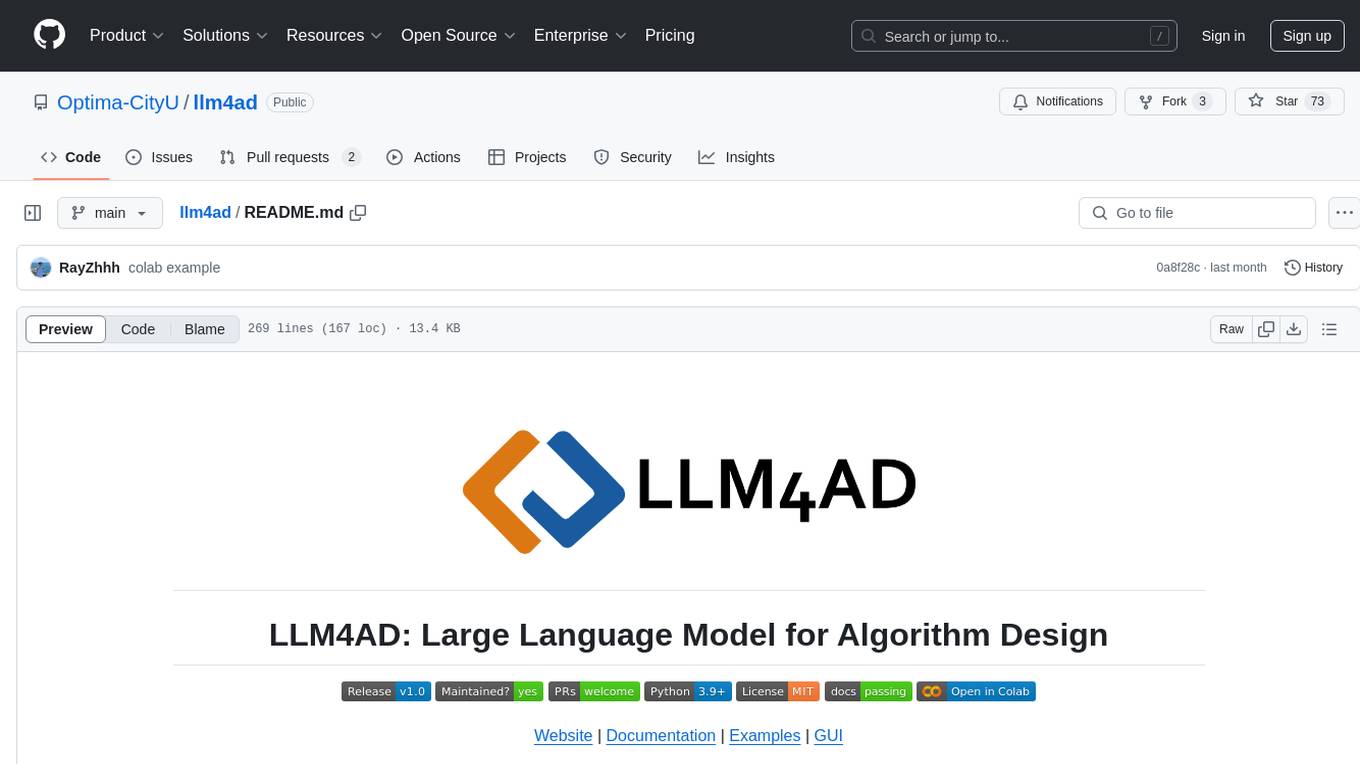
llm4ad
LLM4AD is an open-source Python-based platform leveraging Large Language Models (LLMs) for Automatic Algorithm Design (AD). It provides unified interfaces for methods, tasks, and LLMs, along with features like evaluation acceleration, secure evaluation, logs, GUI support, and more. The platform was originally developed for optimization tasks but is versatile enough to be used in other areas such as machine learning, science discovery, game theory, and engineering design. It offers various search methods and algorithm design tasks across different domains. LLM4AD supports remote LLM API, local HuggingFace LLM deployment, and custom LLM interfaces. The project is licensed under the MIT License and welcomes contributions, collaborations, and issue reports.










